Ukrainians in Russia
This article needs additional citations for verification. (August 2017) |
Slavic peoples (especially East Slavs ) |
The Russian census identified that there were more than 5,864,000 Ukrainians living in
In February 2014, there were 2.6 million Ukrainian citizens in the territory of Russia, two-thirds of the labour migrants; however, after Russia
History
17th and 18th centuries
The
After the abolishment of the Patriarch's chair by
The Moscow court had a choir established in 1713 with 21 singers from Ukraine. The conductor for a period of time was
The Ukrainian presence in the Russian Army also grew significantly. The greatest influx happened after the Battle of Poltava in 1709. Large numbers of Ukrainians settled around St. Petersburg and were employed in the building of the city.
A separate category of emigrants were those deported to Moscow by the Russian government for demonstrating anti-Russian sentiment. The deported were brought to Moscow initially for investigation, then exiled to Siberia, Arkhangelsk or the Solovetsky Islands. Among the deported were Ukrainian cossacks including D. Mhohohrishny, Ivan Samoylovych, and Petro Doroshenko. Others include all the family of hetman Ivan Mazepa, A. Vojnarovsky, and those in Mazepa's Cossack forces that returned to Russia.[citation needed] Some were imprisoned in exile for the rest of their lives, such as hetman Pavlo Polubotok, Pavlo Holovaty, P. Hloba and Petro Kalnyshevsky.
19th century
Beginning in the 19th century, there was a continuous migration from Belarus, Ukraine and Northern Russia to settle the distant areas of the Russian Empire. The promise of free fertile land was an important factor for many peasants, who until 1861 lived under
The Ukrainians created large settlements within Russia, becoming the majority in certain centres. They continued fostering their traditions, their language, and their architecture. Their village structure and administration differed somewhat from the Russian population that surrounded them. Where populations were mixed,
Formation of Ukrainian borders

The first
Certain regions had mixed populations made up of both Ukrainian and Russian ethnicities, and various minorities. These included the territory of
In the course of the mid-1920s administrative reforms, some territory initially under the Ukrainian SSR was ceded to the Russian SFSR, such as the Taganrog and Shakhty cities in the eastern Donbas. At the same time, the Ukrainian SSR gained several territories that were amalgamated into the Sumy Oblast in Sloboda region.
Late 20th century and early 21st century

The Ukrainian cultural renaissance in Russia began at the end of the 1980s, with the formation of the Slavutych Society in Moscow and the Ukrainian Cultural Centre named after T. Shevchenko in Leningrad (now Saint Petersburg).
In 1991, the Ukraina Society organized a conference in Kyiv with delegates from the various new Ukrainian community organizations of the Eastern Diaspora. By 1991, over 20 such organizations were in existence. By 1992, 600 organizations were registered in Russia alone. The congress helped to consolidate the efforts of these organizations. From 1992, regional congresses began to take place, organized by the Ukrainian organizations of Prymoria, Tyumen Oblast, Siberia and the Far East. In March 1992, the Union of Ukrainian organizations in Moscow was founded. The Union of Ukrainians in Russia was founded in May 1992.
The term "Eastern Diaspora" has been used since 1992 to describe Ukrainians living in the former USSR, as opposed to the Western Ukrainian Diaspora which was used until then to describe all Ukrainian diaspora outside the Union. The Eastern Diaspora is estimated to number approximately 6.8 million, while the Western Diaspora is estimated to number approximately 5 million.
In February 2009, about 3.5 million Ukrainian citizens were estimated to be working in the Russian Federation, particularly in Moscow and in the construction industry.[8] According to Volodymyr Yelchenko, the Ambassador of Ukraine to the Russian Federation, there were no state schools in Russia with a program for teaching school subjects in the Ukrainian language as of August 2010; he considered "the correction of this situation" as one of his top priorities.[9]
As of 2007, the number of Ukrainian illegal immigrants in Russia has been estimated as being between 3 and 11 million.[citation needed]
In a 2011 poll, 49% of Ukrainians said that they had relatives living in Russia.[10]
Russo-Ukrainian War
This section needs expansion. You can help by adding to it. (September 2023) |
During the Russo-Ukrainian War that began in 2014, some Ukrainians living in Russia have complained of being labelled a "Banderite" (follower of Stepan Bandera), even when they are from parts of Ukraine where Stephan Bandera has no considerable support.[11]
Starting from 2014, a number of Ukrainian activists and organisations were prosecuted in Russia based on political grounds. Some notable examples include the case of
As of September 2015[update], there were 2.6 million Ukrainians living in Russia, more than half of them classified as "guest workers". A million more had arrived in the previous eighteen months[14] (although critics have accused the FMS and media of circulating exaggerated figures[15][16]). About 400,000 had applied for refugee status and almost 300,000 had asked for temporary residence status, with another 600,000 considered to be in breach of migration rules.[14] By November 2017, there were 427,240 applicant asylum-seekers and refugees from Ukraine registered in Russia,[17] over 185,000 of them having received temporary asylum, and fewer than 590 with refugee status.[18] The refugees were from the territories of Donetsk People's Republic and Luhansk People's Republics taken over by pro-Russian separatists since the Russo-Ukrainian War. Most refugees have headed to rural areas in central Russia. Major destinations for Ukrainian migrants have included Karelia, Vorkuta, Magadan Oblast; oblasts such as Magadan and Yakutia are destinations of a government relocation program since the vast majority avoid big cities like Moscow and Saint Petersburg.[19]
During the
On 22 January 2024 Volodymyr Zelenskyy, the president of Ukraine, has signed a presidential decree "On areas of the Russian Federation historically populated by Ukrainians", urging the Ukrainian government to take measures to "preserve the national identity of Ukrainians in Russia", "counter misinformation regarding the history and present of Ukrainians in Russia" and "develop relations between Ukrainians and other peoples enslaved by Russia".[23]
Ukrainian population centres in Russia


Kuban

The original
According to the 1897 census, 47.3% of the Kuban population (including extensive latter 19th-century non-Cossack migrants from both Ukraine and Russia) referred to their native language as Little Russian (the official term for the
In the 1920s, a policy of
Moscow
In the first years after the revolution of 1905, Moscow was one of the major centres of the Ukrainian movement for self-awareness. The monthly magazine Zoria (Зоря, English: Star) was edited by A. Krymsky, and from 1912 to 1917 the Ukrainian cultural and literary magazine Ukrainskaya zhizn was also published there (edited by Symon Petliura). Books in the Ukrainian language were published in Moscow from 1912 and Ukrainian theatrical troupes of M. Kropovnytsky and M. Sadovsky were constantly performing in Moscow.
Moscow's Ukrainians played an active role in opposing the
According to the 2001 census, there are 253,644 Ukrainians living in the city of Moscow,[34] making them the third-largest ethnic group in that city after Russians and Tatars. A further 147,808 Ukrainians live in the Moscow region. The Ukrainian community in Moscow operates a cultural centre on Arbat Street, whose head is appointed by the Ukrainian government.[35] It publishes two Ukrainian-language newspapers and has organized Ukrainian-language Saturday and Sunday schools.
Saint Petersburg
When
According to the 2001 census, there are 87,119 Ukrainians living in the city of St Petersburg, where they constitute the largest non-Russian ethnic group.[37] The former mayor, Valentina Matviyenko (née Tyutina), was born in Khmelnytskyi Oblast of western Ukraine and is of Ukrainian ethnicity.[verification needed]
Green Ukraine

Grey Ukraine
The Ukrainian settlement of Grey Ukraine or Siry Klyn (literally the "grey wedge") developed around the city of
Yellow Ukraine
The settlement of Yellow Ukraine, or Zholty Klyn (the Yellow Wedge) was founded soon after the
Inter-ethnic relations
Ukrainians in the Russian Federation represent the third-largest ethnic group after
A survey, conducted by the independent Russian research centre
Demographics
Statistics and scholarship
This section needs additional citations for verification. (March 2021) |

Statistical information about Ukrainians is included in the census materials of the Russian Empire, the Soviet Union and the Russian Federation which were collected in
In the aftermath of the breakup of the Soviet Union in 1991, attention has been focused on the Eastern Ukrainian diaspora by the Society for relations with Ukrainians outside of Ukraine. Numerous attempts have been made to unite them. The society publishes the journal Zoloti Vorota (Золоті Ворота, named for The Golden Gate of Kyiv) and the magazine Ukrainian Diaspora.
| No. | Census year[44] | Population of Ukrainians in Russia | Percentage of total Russian population |
|---|---|---|---|
| 1 | 1926 | 6,871,194 | 7.41 |
| 2 | 1939 | 3,359,184 | 3.07 |
| 3 | 1959 | 3,359,083 | 2.86 |
| 4 | 1970 | 3,345,885 | 2.57 |
| 5 | 1979 | 3,657,647 | 2.66 |
| 6 | 1989 | 4,362,872 | 2.97 |
| 7 | 2002 | 2,942,961 | 2.03 |
| 8 | 2010 | 1,927,988[45] | 1.40 |
| 9 | 2015 est. | 5,864,000 | 4.01 |
Religion
The vast majority of Ukrainians in Russia are adherents of the Russian Orthodox Church. The Ukrainian clergy had an influential role on Russian Orthodoxy in the 17th and 18th centuries.
Recently,[
Trends
This section needs additional citations for verification. (May 2021) |
During the 1990s, the Ukrainian population in Russia noticeably decreased due to a number of factors. The most important one was the general population decline in Russia. At the same time, many
Notable Ukrainians in Russia
It has been suggested that this section be split out into another article titled List of Ukrainians in Russia. (Discuss) (January 2024) |







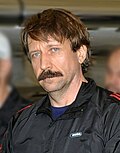
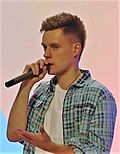

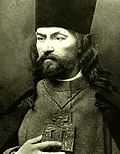
- Marina Ovsyannikova (Tkachuk) – journalist who was employed on the Channel One Russia TV channel
- Vasily Lanovoy, actor who worked in the Vakhtangov Theatre, was also known as the President of Artek Festival of Films for Children
- atomic bomb from the Manhattan Project, and Operation Scherhornin 1944
- Bogdan Stashinsky, a former KGB officer and spy who assassinated the Ukrainian nationalist leaders Lev Rebet and Stepan Banderain the late 1950s
- Stanislav Levchenko (born 1941), Russian KGB major and defector to the United States
- Fedor Glushchenko - conductor and violinist
- Vlad Lisovets – stylist, hair stylist, designer and host
- Ruslan Karpuk (Leviev) - opposition activist, military analyst and founder of the investigative group Conflict Intelligence Team.
- Ulyana Sergeenko - fashion designer
- Vladimir Kiriyenko - business executive
- Vyacheslav Krasko - traveler, manager and financier
- Zinaida Kiriyenko - actress and singer
- Aleksandr Naumenko (singer) - operatic tenor, vocal coach and composer
- Mike Naumenko - Soviet musician
- Olga Pashchenko- musician
- Olga Naumenko - actress
- Zinaida Sharko - actress
- Nadezhda Kurchenko - Soviet flight attendant involved in the hijacking of Aeroflot Flight 244
- Victor Kravchenko (defector) - Soviet defector
- Nelly Korniyenko - Soviet actress
- Irina Miroshnichenko - Soviet film and theatre actress, People's Artist of the RSFSR (1988)
- Alex Kravchenko - professional poker player
- Semyon Tsvigun – officer of the Soviet security police (KGB) whose sudden and unexplained death heralded a major shift in Kremlin power politics.
- Viktor Medvedchuk – Ukrainian opposition politician. Born in Pochet, Krasnoyarsk Krai, Russian SFSR.Vladimir Putin is the godfather of Medvedchuk's daughter Daryna (born in 2004)
- Yury Kovalchuk – billionaire businessman and financier who is "reputed to be Vladimir Putin's personal banker"
- Gennady Timchenko – oligarch and billionaire businessman
- Galina Timchenko - journalist
- Sergey Samsonenko - businessman
- Artemy Tereshchenko, entrepreneur, land-owner, pioneer of sugar production in the Russian Empire
- Simon Tereshchenko, entrepreneur, son of Artemy.
- Varvara Khanenko (née Tereshchenko, 1848–1922), noted art collector alongside her husband Bogdan Khanenko
- Ivan Tereshchenko (1854–1903), collector and patron of the arts.
- Oleg Boyko - international investor and resides in Switzerland, Chairman of Finstar Financial Group
- Oksana Antonenko - economist
- Yury Yaremenko - Soviet economist
- Elena Kostyuchenko - journalist and activist
- Sergei Kukharenko - political and public activist
- Maxim Shevchenko– an editor, journalist and presenter on television and radio, one of the leading Russian journalists and experts on ethno-cultural and religious policies
- Maxim Kononenko - journalist, writer and TV show host
- Anatoly Lysenko - television figure, journalist, director, producer
- Victoria Danilchenko - lawyer and TV presenter
- Nikolay Andrushchenko - journalist
- Petro Osypenko - Soviet public prosecutor
- Sergey Tereshchenko – Prime Minister of Kazakhstan (1991–1994). He was born in an ethnic Ukrainian family in the town of Lesozavodsk, which was in the Primorsky Krai Region of the RSFSR
- Innocent of Irkutsk – missionary to Siberia and the first bishop of Irkutsk in Russia
- Joasaph of Belgorod – Russian Orthodox hierarch, bishop of Belgorod from 1748 until his death
- John of Tobolsk – Metropolitan of Tobolsk
- Saint John of Shanghai and San Francisco– prominent Eastern Orthodox ascetic and hierarch of the Russian Orthodox Church Outside Russia (ROCOR) who was active in the mid-20th century
- Catherine IIin 1764
- Dimitry of Rostov– leading opponent of the Caesaropapist reform of the Russian Orthodox church promoted by Feofan Prokopovich.
- Ivan Zaporozhets – Soviet security officer and official of the OGPU-NKVD who was suspected of being involved in the assassination of Sergei Kirov in Leningrad in December 1934
- Nuremberg.
- Arkady Babchenko – print and television journalist
- Anastasia Kvitko - glamour model and entrepreneur
- Ludmilla Radchenko - female model
- Alexey Goloborodko - contortionist
- Mikhail Kosenko - activist
- Alexey Korolyuk - Soviet-Russian sculptor and medallist, and the first president of the Leningrad medal club
- Iona Nikitchenko – judge of the Supreme Court of the Soviet Union
- Oleksiy Alchevsky– entrepreneur, philanthropist, and industrialist of the Russian Empire. He was a pioneer in establishing the first finance group in Russia.
- 1905 Russian Revolution
- Vasily Filippovich Tkachenko, better known as Vasily the Barefoot (1856–1933), Russian wanderer
- Viktor Bout – arms dealer
- Stefan Yavorsky – archbishop and statesman in the Russian Empire and the first president of the Most Holy Synod
- Nina Kukharchuk-Khrushcheva – First Lady of USSR, the second wife of the Soviet leader Nikita Khrushchev
- Raisa Titarenko-Gorbacheva – First Lady of USSR, wife of Soviet leader Mikhail Gorbachev
- Vera Kholodnaya – star of Russian silent cinema
- Yelena Bondarchuk (half Ukrainian), Soviet actress
- Mikhail Zvinchuk - milblogger and author of the Russian Telegram channel Rybar (Russian: Рыбарь, lit. 'fisherman'), which has over 1.1 million subscribers
- Zhanna Prokhorenko, Soviet actress
- Klara Luchko, Soviet actress
- Grigory Kushelev-Bezborodko - writer, publisher and philanthropist
- Valeriya Zaklunna – Soviet actress, People's Artist of Russia (22 May 2004)
- Pavel Pavlenko – Soviet stage and film actor
- Pyotr Pavlenko - Soviet writer
- Sergei Pavlenko - painter
- Nikolay Andreyevich Storozhenko- painter
- Daria Pavlenko - ballet dancer
- Galina Stepanenko - ballerina
- Yelena Stepanenko - actress
- Gleb Savchenko - dancer and choreographer
- Aleksandr Demyanenko - film and theater actor
- Aleksandr Yatsenko – actor
- Vitali Kishchenko - Soviet actor
- Sergey Stepanchenko - theater and film actor, film director
- Aleksey Fedorchenko - film director
- Alexander Oleshko - theater and film actor, TV presenter, singer, parodist, Honored Artist of Russia (2015)
- Artur Kirilenko – entrepreneur, between 1994 and 2010 was owner and director of Stroymontazh, one of the largest property development companies in St Petersburg, Russia. Honorary Builder of Russia.
- Viktor Pshonka – former Prosecutor General of Ukraine (from 4 November 2010 until 22 February 2014), State Counselor of Justice of Ukraine and member of the High Council of Justice of Ukraine
- Nadezhda Bondarenko - Transnistrian politician who has served as the acting chairperson of the Transnistrian Communist Party (PKP) since late 2018, born in Ivanovo
- Yuri Shvets – Major in the KGB between 1980 and 1990
- Georgy Martyniuk (1940–2014), Russian actor
- Leonid Martynyuk (born 1978), Russian opposition journalist
- Victor Kostetskiy – Russian and Soviet actor
- Anna Kovalchuk – actress
- Miroslava Karpovich – actress and model
- Irina Kovalenko - model, won “Miss Murmansk” and “The Beauty of Russia” titles in 2001
- Irina Antonenko - actress and model, and beauty pageant titleholder who was crowned Miss Russia 2010
- Natalya Lisenko - Ukrainian-Russian actress
- Yaroslav Boyko – Russian actor of theatre and cinema
- Pavel Derevyanko - theatre and film actor
- Yuri Muzychenko – musician and video blogger, frontman and one of the founders of the folk-rock group 'The Hatters'
- Aleksandr Tsekalo – musician, actor, radio and TV host. Founder of production company Sreda.
- Sergey Makovetsky– film and stage actor
- Ivan Koval-Samborsky – Stage and film actor
- Aleksandr Goloborodko- actor
- Ilona Timchenko - pianist and composer
- Oleg Timchenko - contemporary painter and founder of the “10th Floor Group”
- Lyubov Polishchuk - actress
- Dmytro Tabachnyk - politician who served as the minister of education and science of Ukraine from 2010 to 2014
- Sergei Garmash – Soviet and Russian film and stage actor, People's Artist of Russia
- Sergei Magnitsky – Ukrainian-born Russian lawyer and tax advisor
- Optimalniy Variantband
- Dositheus (Ivanchenko)– bishop of the Russian Orthodox Church
- Nikita Dzhigurda – movie actor, singer, and cult media icon
- Allan Chumak – faith healer who came to prominence at the height of Gorbachev's Perestroika
- Aleksei Petrenko – Soviet film and stage actor
- Igor Petrenko - actor
- Kirill Petrenko - conductor, Chief Conductor of the Berlin Philharmonic
- Mikhail Petrenko- opera singer
- Roman Petrenko - media executive
- Vasily Petrenko - conductor, Chief Conductor of the Royal Liverpool Philharmonic and Oslo Philharmonic
- Andrey Krasko - theatre and cinema actor
- Olga Krasko - Russian actress
- Ivan I. Krasko- film and theater actor, father of Andrey
- Julia Krasko - violinist
- Alexei Romanenko - cellist
- Petro Prokopovych – founder of commercial beekeeping and the inventor of the first movable frame hive
- Viktor Petrik – businessman, claims to have made a number of scientific breakthroughs which he markets through his company
- Anatoly Savenko – Russian nationalist, social and political activist, lawyer, writer, essayist and journalist.
- Kirill Vyshinsky – journalist
- Alexander Borodai – journalist and entrepreneur, former separatist leader who was Prime Minister of the self-proclaimed Donetsk People's Republic in 2014
- Arkady Babchenko – print and television journalist
- Anatoly Lysenko – Soviet and Russian television figure, journalist, director, producer
- Dmitry Gerasimenko – businessman, ex-owner of steel company Krasny Oktyabr Closed Joint-Stock Company and of basketball clubs BC Krasny Oktyabr and Pallacanestro Cantù.
- Yuriy Kutsenko – actor, producer, singer, poet, and screenwriter
- Diana Panchenko - journalist and TV presenter
- Dmitriy Dyachenko– director, producer and screenwriter
- Minister of Revenue and Duties of Ukraine
- Vladimir Ivanenko– founder of the first nongovernmental cable and essential television network in the USSR (1988); initiator and organizer of the first direct satellite broadcast from the territory of the former USSR (1994)
- Oleksiy Zhuravko - politician
- Leonid Zhunko - politician
- Viktor Yanukovych, the fourth President of Ukraine
- Lyudmyla Nastenko-Yanukovych, former First Lady of Ukraine
- Viktor Yanukovych Jr, a Ukrainian politician and Member of Parliament
- Oleksandr Yakymenko (public servant) - chief of the security service of Ukraine 2013–2014
- Illia Kyva – Ukrainian politician, effectively defected to Russia by asking Russian president Vladimir Putin for a Russian passport (Russian citizenship) and political asylum
- UNA-UNSOand coordinator of Right Sector in Western Ukraine.Was born near the Ural Mountains



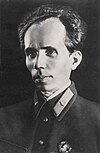


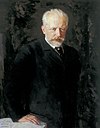

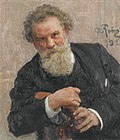
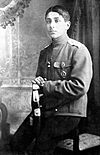
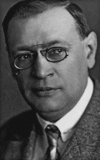



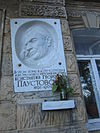







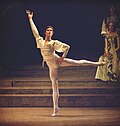


- Nikolai Alexandrovich Kushelev-Bezborodko- art collector
- Igor Danchenko, Russian analyst in the United States
- Tikhon Dzyadko - journalist, television presenter and media manager, the editor-in-chief of the TV Rain channel, former deputy editor-in-chief and host of the RTVI TV network.
- Yury Dud – sports journalist and YouTuber, was editor-in-chief of Sports.ru
Culture
- Nikolai Gogol – writer
- Pyotr Ilyich Tchaikovsky (quarter Zaporizhian cossack) – composer
- socialist realistwriter
- Korney Chukovsky – poet
- Yevgeny Yevtushenko – poet
- Sasha Yevtushenko - director and producer for BBC Radio, son of Yevgeny
- Sergei Bondarchuk – actor and film director
- Natalya Bondarchuk –actress and film director
- Fyodor Bondarchuk – film director
- Alexander Dovzhenko – film director
- Leonid Gaidai – film director
- human rights activist
- Taras Shevchenko – poet
- Vladimir Korolenko – writer
- Mikhail Zoshchenko – writer
- Vladimir Nemirovich-Danchenko – playwright and theatre administrator, one of the two founders of the Moscow Art Theatre
- Vasily Nemirovich-Danchenko – writer and a journalist
- Sergei Lukyanenko – science fiction and fantasy author
- Konstantin Paustovsky – writer
- Gregory Skovoroda– writer and philosopher
- Anna Netrebko – operatic soprano
- Arkady Averchenko – playwright and satirist
- Larisa Shepitko – film director, screenwriter and actress
- Vasily Avseenko (Vasily Avseyenko) (1842–1913), Russian literary critic, writer, and journalist
- Grigory Chukhray – Soviet film director
- Pavel Chukhray – Soviet film director
- Les Kurbas – Soviet film director
- Konstantin Lopushansky – Soviet and Russian film director, film theorist and author
- Pavel Morozenko – Soviet theatre and film actor
- Yuri Moroz– Soviet and Russian film director, actor, scriptwriter, producer
- Andrei Kravchuk – television and film director and screenwriter
- David Burliuk – poet and painter, often described as "the father of Russian Futurism"
- Wladimir Burliuk– avant-garde artist, Cubo-futurist
- Theophan Prokopovich – Russian Imperial Orthodox theologian, writer, poet, mathematician, and philosopher
- Amvrosy Metlinsky – poet, ethnographer, folklorist and panslavist
- Dmitry Levitsky– painter
- Vladimir Borovikovsky – painter
- Konstantin Kryzhitsky – landscape painter
- Boris Vladimirski – Soviet painter of the Socialist Realism school.
- Dmitry Bezperchy – painter
- Rufin Sudkovsky– painter
- Vladimir Orlovsky – painter
- Nikolai Pimonenco– painter
- Nikolai Yaroshenko – painter
- Alexander Litovchenko – painter
- Ivan Vasilenko - writer
- Galina Pisarenko - Soviet-born Russian soprano
- Gennady Pasko - impressionist painter
- Alexander Murashko – painter
- Anton Losenko – neoclassical painter and academician
- Aleksandr Shevchenko – modernist painter and sculptor
- Artem Ovcharenko - ballet dancer
- Gennady Ovcharenko - artist
- Sergey Solomko – painter, watercolorist, illustrator and designer
- Ivan Soshenko – painter
- Maximilian Kirienko-Voloshin - poet
- Vasily Velichko – poet, playwright and publicist
- Alexei Khvostenko - avant-garde poet, singer-songwriter and artist
- Ivan Savenko – painter, Honored Artist of the RSFSR
- Yury Kharchenko - artist
- Yaroslav Levchenko - modern painter
- Nikolay Samokish – painter
- Maria Rudnitskaya - Soviet realist painter, graphic artist, and art teacher
- Igor Savitsky – painter, archeologist and collector, especially of avant-garde art
- Grigori Zozulya – artist
- Ippolit Bogdanovich – Russian classicist author of light poetry,
- Yevgeny Grebyonka– romantic prose writer, poet, and philanthropist
- Vasily Kapnist – poet and playwright
- Igor Markevitch – avant-garde composer and conductor
- Yevhen Pluzhnyk – poet
- Vasily Stus – poet
- Daria Serenko – poet, curator and public artist
- Sergey Parkhomenko – publisher, journalist and political commentator
- Igor Savchenko – screenwriter and film director
- Sergej Mironović Golovčenko - writer and illustrator
- Ilia Lagutenko– musician
- Yevgeny Nesterenko - opera singer
- Yuri Leonidovich Nesterenko- writer and antisexual activist
- Viktor Burduk - artist
- Yuri Shevchuk – musician
- Yuri Klimenko – Soviet and Russian cinematographer and photographer
- Nikolai Gubenko – Soviet and Russian actor, film and theatre director, screenwriter, founder of the Community of Taganka Actors theatre.People's Artist of the RSFSR
- Roman Miroshnichenko - virtuoso guitarist, composer, and band leader
- Fyodor Sologub – Symbolist poet, novelist, playwright and essayist
- lyric tenor, long-time teacher at the Moscow Conservatory
- Bohdan Dedyckiy – writer, poet and journalist
- Maxim Berezovsky – composer
- Grigory Alchevsky– composer
- Michał Czajkowski – writer
- Tomasz Padura– Romantic poet
- Grigory Danilevsky – writer, historical novelist, and Privy Councillor of Russia
- Yuri Klimenko – Soviet and Russian cinematographer and photographer
- Maryna and Serhiy Dyachenko – fantasy authors
- Viktor Dotsenko - author
- Aleksandr Ivanchenko - writer
- Vasily Narezhny – writer known for his satirical depiction of provincial mores in the vein of the 18th-century picaresque novel
- Ruslan Gorobets – music composer, singer and arranger
- Nikolay Shcherbina – poet
- Sergei Skripka - Soviet conductor, and a People's Artist of Russia, conductor of the State Symphony Cinema Orchestra.
- Klym Polishchuk – journalist, poet and writer
- Yury Koval– author, artist, and screenplay writer
- Aleksei Bibik – one of the first working-class novelists
- Valentin Pikul – Soviet historical novelist
- Oleg Kulik – performance artist, sculptor, photographer and curator
- Anatoly Polyanski– architect
- Alexander Kaminsky - Russian Imperial architect
- Ivan Martos – Ukrainian and Russian sculptor and art teacher who helped awaken Russian interest in Neoclassical sculpture
- Alexander Vertinsky – artist, poet, singer, composer, cabaret artist and actor
- Serhii Vasylkivsky – artist
- Vasili Gogol-Yanovsky - author of a number of theater pieces
- Panteleimon Kulish – writer, critic, poet, folklorist, and translator
- Yevgeny Titarenko – writer
- Eduard Butenko (1941–2006), Russian actor and theatre director
- Nikolai Gritsenko – theater and film actor
- Nikolay Gritsenko - painter
- Vladimir Sakhnenko - painter
- Elena Kostenko - Soviet painter
- Vasili Eroshenko - anarchist writer, esperantist, linguist, and teacher
- Nikolai Panchenko - poet
- Lyubov Zakharchenko - poet and singer-songwriter
- Grigory Pasko – military journalist
- Lev Vlassenko - Soviet pianist and teacher
- Natasha Vlassenko - pianist and teacher
- Maria Pakhomenko - Soviet singer
- Viktor Kosenko – composer, pianist, and educator
- Vadim Rudenko - pianist
- RSFSR
- Klavdiya Shulzhenko – Soviet popular female singer and actress
- Alexandra Snezhko-Blotskaya – Soviet animated film director
- Lyudmila Gurchenko – popular Soviet and Russian actress, singer and entertainer. People's Artist of the USSR (1983)
- Viktor Klimenko – singer
- Vanya Dmitrienko -singer
- Darya Antonyuk – singer
- Anatoly Marchenko - author
- Yevgeny Kibkalo – baritone and a People's Artist of the RSFSR
- Viktor Merezhko – screenwriter, film director, playwright, actor, writer, TV presenter, People's Artist of the Russian Federation (2014)
- Albert Chernenko - philosopher, best known for his innovations in the field of social and legal philosophy
- Oleg Karavaychuk – Soviet and Russian composer, author of music for many films and theater performances
- Anastasia Stotskaya – singer
- Arkady Ukupnik – composer, pop singer, actor, and producer
- Bogdan Titomir – musician, rapper and DJ, who began his career in a popular 1990s duo Car-Man
- Vasiliy Vakulenko (Basta) - rapper, producer and radio host
- Sogdiana Fedorinskaya– singer and actress
- Boris Slutsky – poet
- Alexander Gnylytsky– artist
- Tetyana Yablonska– painter
- Illya Chichkan – artist
- Aleksandr Melnik - film director
- Anton Melnik - film producer, known for his work in action movies
- Vitaly Korotich – writer and journalist
- Pamfil Yurkevich – idealist philosopher and teacher
- Nikolay Gnedich – poet and translator
- Natalia Dudinskaya – prima ballerina who dominated the Kirov Ballet from the 1930s through the 1950s
- Svetlana Loboda – singer and composer
- Vera Brezhneva (Halushka) – singer
- Natasha Korolyova (Porivay) – singer
- Sergei Glushko - actor, singer and fitness model, the husband of Natasha Korolyova
- Anastasia Prikhodko – singer, represented Russia in the Eurovision Song Contest 2009 in Moscow
- Voice"
- Alexander Archipenko – avant-garde artist, sculptor, and graphic artist
- Ilya Bondarenko - architect
- Maria Protsenko - Soviet architect
- Alexander Zelenko - architect
- Marian Peretyatkovich – architect
- Andrey Kovalchuk – sculptor.
- Natalia Ermolenko-Yuzhina – opera singer (soprano)
- Nicolai Ivanovich Kravchenko – battle painter, journalist and writer
- Yevsey Moiseyenko – Soviet painter and pedagogue. People's Painter of the USSR (1970) and Hero of Socialist Labour (1986).
- Pyotr Leshchenko – singer, universally considered to be "the King of Russian Tango"
- Lev Leshchenko - singer
- Olga Peretyatko – operatic soprano
- Vladimir Bortko – film director
- Zinaida Pronchenko - film historian, film critic, and journalist
- Alla Horska – monumentalist painter, one of the first representatives of the underground art movement
- Mykhailo Boychuk – painter, most commonly known as a monumentalist
- Igor Krutoy – music composer, performer, producer and musical promoter
- Mikhail Gulko – author and performer of Russian chanson
- Nikolai Fomenko, Russian rock musician and motor racer
- Bela Rudenko – opera singer, music teacher, and professor of the Moscow Conservatory
- Ignaty Potapenko – writer and playwright.
- Vladimir Khotinenko – film director
- Igor Matvienko – producer, composer, founder of the bands Lyube, Ivanushki International, Korni, Fabrika, KuBa
- Lolita Milyavskaya – singer, actress, TV and film director
- Yolka – singer
- Boris Tishchenko - composer and pianist
- Sergey Dorenko – Russian TV and radio journalist, known for hosting a weekly news commentary program in 1999–2000
- Zinaida Pronchenko – film historian, film critic, and journalist
- Sergey Migitsko – film and theater actor
- Aleksei Kravchenko (actor) - Soviet actor
- Alla Osipenko - Soviet ballerina
- Irina Kupchenko – stage and film actress
- Vladislava Evtushenko - actress, dancer, model and beauty pageant titleholder
- Viktor Avdyushko – Soviet actor and a People's Artist of the Russian SFSR
- Alexey Titarenko - photographer and artist
- Aleksandr Filippenko - actor, People's Artist of Russia (2000)
- Vera Kamsha – author of high fantasy and a journalist.
- Andrey Kavun – film director and screenwriter
- Halyna Bezruk – actress and singer
- Anna Kovalchuk – actress known for her roles in film, television, and theater
- Andrey Korolchuk - Soviet painter, graphic artist, printmaker, book artist, teacher
- Eldzhey (Alexey Uzenyuk) – rapper and songwriter
- Roman Viktyuk – theatre director, actor, and screenwriter
- Taisia Povaliy - singer and actress
- Mikhail Reshetnyak - singer, composer and songwriter
- Anna Asti - singer
Sports

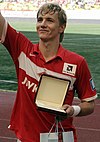


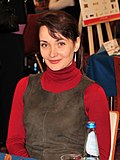



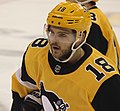

































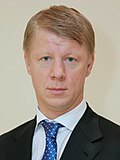




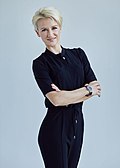





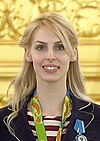



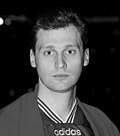










- Vladimir Kramnik – chess grandmaster, the Classical World Chess Champion from 2000 to 2006, and the undisputed World Chess Champion from 2006 to 2007. He has won three team gold medals and three individual medals at Chess Olympiads.
- Alexander Grischuk – chess grandmaster, Russian champion (2009), three-time world blitz chess champion (in 2006, 2012 and 2015).
- Alexandra Kosteniuk – chess grandmaster who was Women's World Chess Champion from 2008 to 2010. She was European women's champion in 2004 and a two-time Russian Women's Chess Champion (in 2005 and 2016)
- Lyudmila Rudenko – Soviet chess player and the second women's world chess champion, from 1950 until 1953; was awarded the FIDE titles of International Master (IM) and Woman International Master (WIM) in 1950, and Woman Grandmaster (WGM) in 1976. She was the first woman awarded the International Master title.
- Natalia Titorenko – chess player who hold the FIDE title of Woman International Master (1982)
- Ekaterina Lagno – Russian (since 2014) chess grandmaster, Women's Vice World Champion in 2018, Women's World Rapid Champion in 2014 and Women's World Blitz Champion in 2010, 2018 and 2019.
- Andrey Esipenko – chess grandmaster, who won the European U10 Chess Championship in 2012, and both the European U16 and World U16 Chess Championship in 2017
- Dmitry Jakovenko - chess player, who was awarded the title Grandmaster by FIDE in 2001
- Kirill Alekseenko - chess grandmaster
- Anton Demchenko - chess grandmaster
- Georgy Borisenko - Soviet correspondence chess grandmaster and chess theoretician
- Alexander Panchenko - chess Grandmaster and honored coach who headed the All-Russian chess school
- Boris Savchenko - chess player
- Valentina Golubenko - Russian-born chess player
- Alexander Donchenko - Russian-German chess grandmaster
- Alexander Moiseenko - 2013 European chess champion
- Nikolay Davydenko – tennis player
- Philipp Davydenko - tennis player, brother of Nikolay
- Andrei Kirilenko - basketball executive and former professional basketball player
- Vladislav Tretiak – ice hockey goaltender; 3 time Olympic gold medallist; 10 time world champion; considered one of the greatest of all time
- Ilya Kovalchuk – ice hockey player
- Pavel Datsyuk – professional ice hockey player who is currently an unrestricted free agent
- Viktor Gordiyuk- former ice hockey right wing
- Alexei Zhitnik – ice hockey defenceman; has played more games in the National Hockey League (NHL) (1,085) than any other Soviet-born defenceman.
- Daniil Sobchenko – ice hockey player; was the member of the Russian national team that competed in the IIHF World Championship's under 18 and under 20 levels; winning gold for the country in 2011.
- Vitaly Anikeyenko – ice hockey player
- Angelina Goncharenko - ice hockey player
- Kirill Marchenko - professional ice hockey winger currently playing with the Columbus Blue Jackets of the National Hockey League
- Nikolai Kovalenko - ice hockey forward
- Andrei Kovalenko - former professional ice hockey forward
- Filipp Savchenko - ice hockey player
- Andrei Nikitenko - ice hockey player
- Vyacheslav Leshchenko - professional ice hockey right winger
- Grigori Denisenko - professional ice hockey winger currently playing for the Henderson Silver Knights of the American Hockey League as a prospect to the Vegas Golden Knights of the National Hockey League
- Alexey Marchenko – professional ice hockey defenceman who currently plays for Lokomotiv Yaroslavl in the Kontinental Hockey League (KHL)
- Alexei Tereshchenko – professional ice hockey forward, who is currently an unrestricted free agent, he most recently played for Avangard Omsk of the Kontinental Hockey League (KHL).
- Vladimir Tarasenko – professional ice hockey right winger and alternate captain for the St. Louis Blues of the National Hockey League (NHL)
- Andrey Tarasenko (ice hockey)- ice hockey player
- Ignat Zemchenko – professional ice hockey player currently playing with HC Yugra in the Supreme Hockey League (VHL)
- Roman Lyashenko - ice hockey player
- Vasily Demchenko - ice hockey player
- Kirill Kononenko- ice hockey player
- Kirill Sidorenko - ice hockey player
- Yuri Babenko - ice hockey player
- Andrei Kuzmenko - ice hockey player
- Igor Rasko - former professional ice hockey centre
- Gleb Klimenko - ice hockey player
- Sergey Gomolyako - ice hockey player
- Bogdan Savenko - Soviet ice hockey player
- Vitaliy Lytvynenko - Soviet ice hockey player
- Andrey Rasolko - Soviet ice hockey player
- Konstantin Spodarenko - Soviet ice hockey player
- Oleg Antonenko - Soviet ice hockey player
- Vladimir Lutchenko - retired Soviet ice hockey player who played in the Soviet Hockey League
- Vyacheslav Timchenko (ice hockey) - Soviet ice hockey player
- Andrei Savchenko - Soviet ice hockey player
- Viktor Konovalenko - Soviet ice hockey goaltender
- Pavel Boychenko - former professional ice hockey player who played in the Russian Superleague (RSL) and Kontinental Hockey League (KHL)
- Mikhail Grigorenko - professional ice hockey forward for HC CSKA Moscow of the Kontinental Hockey League (KHL)
- Igor Grigorenko, Russian professional ice hockey right winger
- Vyacheslav Litovchenko - professional ice hockey forward who is currently playing with HC Yugra of the Supreme Hockey League (VHL)
- Valentyn Oletsky - Soviet professional ice hockey player
- Denis Shvidki – former professional ice hockey right wing
- Dmitri Khristich – ice hockey player
- Anton But – former professional ice hockey winger
- Oleg Tverdovsky – ice hockey defenceman
- Vitaly Vishnevskiy – former professional ice hockey defenceman. He previously played in the National Hockey League for the Mighty Ducks of Anaheim, Atlanta Thrashers, Nashville Predators, and New Jersey Devils, as well as for Lokomotiv Yaroslavl, SKA St. Petersburg and Severstal Cherepovets in the KHL.
- Alexander Komaristy – ice hockey centre who plays for HC Dinamo Saint Petersburg in the Supreme Hockey League (VHL)
- Andrei Nikolishin – ice hockey player; Olympic Bronze medal winner
- Anton Babchuk – ice hockey defenceman
- [[Alexander Akimovich Martynyuk (Russian: Александр Акимович Мартынюк; 11 September 1945 – 16 November 2022)[citation needed] was a Russian ice hockey player who played in the Soviet Hockey League
- Alexander Martynyuk - ice hockey player who played in the Soviet Hockey League
- Alexander Godynyuk - Soviet professional ice hockey defenceman
- Denis Metlyuk - professional ice hockey player who played in the Russian Superleague (RSL)
- Igor Kravchuk (born 1966), Russian ice hockey player
- Alexander Korolyuk - former professional ice hockey winger who played in the National Hockey League (NHL) with the San Jose Sharks before playing the remainder of his career in the Kontinental Hockey League (KHL)
- Arseni Gritsyuk - professional ice hockey player for SKA Saint Petersburg of the Kontinental Hockey League
- Alex Galchenyuk - ice hockey center currently under contract with Amur Khabarovsk of the Kontinental Hockey League
- Alexander Galchenyuk - former professional ice hockey, began playing top-level professional hockey with HC Dynamo Moscow
- Kostiantyn Kasianchuk – ice hockey player
- Sergei Petrenko (footballer) (born 1955), Soviet/Russian football player and coach
- Sergei Petrenko - Soviet ice hockey player
- Oleg Kovalenko (ice hockey) - Soviet ice hockey player
- Yuri Gunko - Soviet ice hockey player
- Vladimir Tarasenko - ice hockey player
- Viktor Petrenko - Soviet World and Olympic champion in figure skating
- Vladimir Petrenko - Soviet figure skater
- Alexei Sviatchenko - pair skater
- Stanislav Timchenko - figure skater
- Zenit Saint Petersburg
- long-distance runner, who won the 5000 and 10000 m races at the 1956 Olympics, setting Olympic records in both events
- Ivan Poddubny – professional wrestler from the Russian Empire and later the Soviet Union
- Olga Dvirna – female middle-distance runner who represented the Soviet Union in the late 1970s and early 1980s
- Akhmat Grozny, as a central midfielder, represents the Russia national football team internationally
- Anatoliy Lebid - Soviet footballer
- Ilona Melnichenko - ice dancer for the Soviet Union
- Sergei Ponomarenko - ice dancer
- Sergei Yuryevich Ponomarenko- footballer
- Tatyana Stetsenko - Soviet rower
- Svetlana Ponomarenko - long-distance runner
- Oleg Salenko – soccer player
- Sergei Lemeshko - footballer
- Hryhoriy Nosko - Soviet footballer
- Aleksandr Stolyarenko - footballer
- Aleksandr Kleshchenko - football player
- Evgeny Kleshchenko - BMX rider
- Nadezhda Kharchenko - footballer
- Veniamin Soldatenko - Soviet athlete who competed mainly in the 50 km walk
- FC Alania Vladikavkaz
- Vladimir Kononenko - footballer
- Svetlana Petko- football goalkeeper
- Aleksandr Naumenko (footballer) (born 1997), Russian football player
- Valentina Kharchenko - track and field athlete
- Yuri Kharchenko - Soviet luger
- Semen Pavlichenko- luger
- Ksenia Klimenko - gymnast
- Polina Shmatko - gymnast
- Aleksandr Vasilenko - footballer
- Dmitri Vasilenko - gymnast
- Oleg Vasilenko - football manager
- Ruslan Gordiyenko - footballer
- Igor Kuzmenko - footballer
- Mikhail Mishchenko - footballer
- Valeri Voytenko - football coach and player
- Yevgeni Lutsenko - football striker
- Ivan Kuzmenko - swimmer
- Valentin Vinnichenko - footballer
- Aleksei Kutsenko - football player
- Volodymyr Levchenko - Soviet footballer
- Yuriy Kutsenko - Soviet decathlete
- Mykhaylo Storozhenko - Soviet decathlete
- Artem Lukyanenko - decathlete
- pole vaulter
- Yevgeni Golovchenko - football player
- Dmitri Sidorenko - footballer
- Elizaveta Sidorenko - Paralympic swimmer
- Tatyana Sidorenko - Soviet volleyball player
- Vasiliy Sidorenko - Soviet-Russian hammer thrower
- Ivan Revenko - para-athlete
- Andrey Tarasenko (powerlifter) - powerlifter
- Viktor Nikitenko - football coach
- David Yurchenko- footballer
- Ihor Yurchenko - Soviet footballer
- Natalia Yurchenko - Soviet artistic gymnast
- Vasyl Yurchenko - Soviet sprint canoer
- Sergei Miroshnichenko (footballer) - footballer
- Veronika Miroshnichenko - tennis player
- Valery Kornienko - Soviet pair skater
- Oleg Kornienko- Russian and Kazakhstani footballer
- Igor Lebedenko - footballer
- Igor Shinkarenko - football player and manager
- Vladlen Naumenko - Soviet footballer
- Yelena Lebedenko - heptathlete
- Artem Dzyuba – Ukrainian-born Russian soccer player, whose father is Ukrainian.
- Aleksei Miranchuk and Anton Miranchuk – twin Russian soccer players of Ukrainian origin from Kuban.
- Yaroslav Rakitskyi – footballer currently playing as a defender for Russian club FC Zenit Saint Petersburg
- Vladislav Ternavsky – football coach and former player
- Anatoliy Byshovets – Soviet and Russian football manager and former Soviet international striker
- Sergei Semak – football manager and a former international midfielder who is currently the manager of Zenit St. Petersburg
- Alexey Oleynik– mixed martial artist and combat sambo fighter currently signed with the Ultimate Fighting Championship, competing in their heavyweight division.
- Anna Pogorilaya – figure skater
- Irina Poltoratskaya – Russian team handball player, playing on the Russian women's national handball team.
- Tatyana Navka– former competitive ice dancer
- HC Lada
- Oksana Grishuk – former competitive ice dancer.
- Elena Riabchuk – former pair skater
- Yury Yermolenko - sport shooter
- Rinat Yesipenko - footballer
- Aleksei Kalashnik – professional football player
- Valentin Moldavsky – Russian (since 2014) combat sambo and mixed martial arts practitioner, World and European Champion in +100 kg.
- Dmitry Pashytsky – volleyball player, member of the Russian club Zenit Saint Petersburg, Estonian Champion (2011), Russian Champion (2019).
- Irina Zhuk – ice dancing coach and a former competitor for the Soviet Union
- Maria Stavitskaia – former competitive figure skater
- Leonid Zhabotynsky– weightlifter who set 19 world records in the superheavyweight class, and won gold medals at the 1964 and 1968 Olympic Games
- Alexei Dudchenko - acrobatic gymnast
- Valentin Vdovichenko - Soviet fencer
- Valeri Kravchenko - Soviet volleyball player
- Sergei Makarenko – retired Soviet sprint canoeist who competed from late 1950s to early 1960s
- Valeri Didenko (born 1946), Soviet canoeist
- Nikita Gubenko - slalom canoeist
- Konstantin Kostenko - Soviet sprint canoeist
- Olga Kostenko - sprint canoeist
- Alexander Dyachenko - sprint canoer
- Ruslan Mashchenko - hurdler and sprinter
- Anatoly Kononenko - Soviet sprint canoer
- Zdislav Soroko - Soviet sprint canoer
- Grigory Kiriyenko - fencer
- Valeri Kiriyenko - biathlete
- Ekaterina Stepanenko - football player
- Nikolay Stepanenko - Soviet sprint canoeist
- Oleg Stepanenko - Soviet hurdler
- Sergei Stepanenko - Russian footballer
- Wladimir Resnitschenko- fencer
- Vyacheslav Ivanenko - Soviet race walker
- Dmitri Gunko - football coach and former player
- Sergei Gunko - football coach and former player
- Aleksandr Omelchenko - footballer
- Igor Omelchenko - Soviet swimmer
- Dmitri Kirichenko - footballer and coach
- Dmitry Sergeyevich Kosenko- footballer
- Sergei Kulichenko - footballer
- Andrey Karpenko - Soviet footballer and football functionary
- Leonid Derevyanko - Soviet sprint canoer who competed in the early to mid-1970s
- Anatoli Yevtushenko– Honored coach of the USSR (handball)
- Alexander Evtushenko - racing cyclist
- 2012 Olympic Games
- Vitali Kovalenko - volleyball player
- Irina Zaryazhko - volleyball player, who plays as a middle blocker
- Aleksandr Kovalenko – retired USSR triple jumper who won the bronze medal at the 1988 Summer Olympics
- Vladimir Yashchenko – member of the Soviet national team and former world record holder in the high jump (233 cm, 234 cm and 235 cm).
- Tetyana Hlushchenko – former Soviethandball player who competed in the 1976 Summer Olympics
- Tetyana Kozyrenko – footballer, who plays for Lokomotiv Moscow in the Women's Football League
- Andrei Akimenko Russian football player
- Rod Dyachenko - soccer player
- Vitalii Gritsenko (born 1985), Russian Paralympic athlete
- Mikhail Akimenko, high jumper
- Pavel Fomenko, high jumper
- Vadim Tarasenko - speedway rider
- Stanislav Tarasenko - long jumper
- Evgeny Yarovenko- Soviet footballer and coach
- Vladyslav Akimenko - Soviet competition sailor
- Veronika Andrusenko - swimmer
- Viktor Krasko - Soviet swimmer
- Svetlana Kolesnichenko - synchronized swimmer
- Kirill Kolesnichenko - footballer
- Mikhail Ponomarenko - footballer
- Yevgeny Ovsiyenko - association football player
- Yevgeny Onopriyenko - footballer
- Ilya Khomenko - competitive swimmer who specializes in breaststroke
- Viacheslav Andrusenko - swimmer
- Sergey Fesenko, Sr.- swimmer
- Yuliya Fomenko, Russian backstroke swimmer
- Yekaterina Fesenko - Soviet hurdler
- Heorhiy Dybenko (born 1928), Soviet athlete
- free diving champion featured in a photographic series illustrating the Orda Cave, a gypsum crystal cave underneath the western Ural Mountains
- Zvezda Perm
- Anatoli Zinchenko - Soviet footballer and coach
- Artyom Danilenko - footballer
- Aleksei Savchenko - footballer
- Anastasia Savchenko - pole vaulter
- Mikhail Savchenko - footballer
- Oxana Savchenko - Paralympic swimmer
- Liliya Vasilchenko - Soviet cross-country skier
- Olga Vasilchenko - rower
- Aleksei Kostenko - footballer
- Vladimir Romanenko - footballer
- Andrei Zakharenko - association football player
- Aleksandr Sayenko - football player
- Dmitriy Danilenko - fencer
- Ekaterina Gnidenko - track cyclist
- Irina Kirichenko - Soviet sprint cyclist
- Viktoriia Danilenko - gymnast
- Vladimir Danilenko - Paralympic swimmer
- Ekaterina Dmitrenko - footballer
- Oleg Gerasimenko - footballer
- Oleg Dmitrenko - footballer
- Gennady Ivanchenko - Soviet weightlifter
- Ivan Ivanchenko - footballer
- Anastasia Dotsenko - cross-country skier
- Sergei Dotsenko - Soviet football player and coach
- Sergei Prikhodko (footballer, born 1962), football player and coach
- Sergei Prikhodko (footballer, born 1984), football player
- Aleksei Babenko - footballer
- Viktor Bondarenko (footballer) - football coach and former player
- Alexei Eremenko (born 1983), Russian-Finnish association football player
- Aleksei Borisovich Yeryomenko (born 1964), Russian-Finnish association football player, father of Alexei Eremenko
- Igor Eremenko (born 1997), Russian ice dancer who defected to the United States
- Ilya Yeryomenko (born 1998), Russian footballer
- Artem Klimenko – professional basketball player
- Andrei Klimenko - footballer
- Anton Klimenko - footballer
- Viktor Vashchenko – former professional footballer
- Dmitry Mikhaylenko - football player who plays for FC Khimik Dzerzhinsk
- FC SKA-Energiya Khabarovskon 30 October 2013
- Iryna Chunykhovska – former sailor, who competed for the Soviet Union
- Larysa Moskalenko– former sailor, who competed for the Soviet Union
- Alexander Moskalenko - trampolinist
- Nikolay Moskalenko - football goalkeeper
- Vitaliy Moskalenko - triple jumper
- Oleg Protsenko - triple jumper
- Anton Kalinitschenko - ski jumper
- Regina Kalinichenko (born 1985), Russian handball player
- Irina Ilchenko - volleyball player
- Petr Samoylenko - basketball player
- Aleksandr Krivoruchko - football player
- Angelina Lazarenko- volleyball player, a member of the Russia women's national volleyball team
- Viktor Lazarenko- Soviet footballer
- Viktoriia Lazarenko - skier
- Olga Lazarenko (born 1980), Russian skier
- Vitaly Lazarenko - Russian/Soviet acrobat
- Stanislav Zakharchenko - footballer
- Yevgeni Zakharchenko - footballer
- Larisa Ilchenko - long-distance swimmer
- Leonid Zayko - volleyball player
- Ksenia Ilchenko - volleyball player, playing as an outside-spiker
- Svetlana Parkhomenko - tennis player
- Kostyantyn Parkhomenko – football player who last played for FC Sakhalin Yuzhno-Sakhalinsk
- Igor Gamula – professional football coach and a former player. He works as a scout for FC Rostov. He made his debut in the Soviet Top League in 1978 for FC Zaria Voroshilovgrad.
- Anatoli Polivoda – basketball player who played for the Soviet Union
- Igor Pedan – strongman who is best known for competing in the IFSA Strongman World Championships and World's Strongest Man
- Victor Khryapa – former professional basketball player who last played for CSKA Moscow of the VTB United League
- Ilya Tsymbalar – football player and coach
- Sergei Yuran – professional football manager and a former player. He is the manager of SKA-Khabarovsk.
- Vasil Yakusha – Soviet rower who competed for the Soviet Union in the 1980 Summer Olympics and in the 1988 Summer Olympics.
- Oleksandr Marchenko – Soviet rower. He and his partner, who won the bronze medal for the Soviet Union in the double sculls competition at the 1988 Summer Olympics
- Vladimir Marchenko (gymnast) - Olympic athlete
- Ivan Edeshko – professional basketball player and coach.
- Aleksandr Sobko – former football player
- Valeri Popenchenko – Soviet boxer who competed in the middleweight division (−75 kg)
- Boris Butenko – Soviet athlete, who competed in the men's discus throw at the 1952 Summer Olympics
- Aleksandr Butenko - footballer
- Mykhaylo Ishchenko - Soviet handball goalkeeper
- Natalia Ishchenko - competitor in synchronized swimming
- Yan Ishchenko - football player
- Sergei Butenko - football coach and former player
- Valeri Butenko (1941–2020), Soviet footballer
- Mykola Fedorenko, retired Soviet football player and a current Ukrainian football coach
- Andriy Tishchenko – Soviet former rower who competed for the Soviet Union in the 1980 Summer Olympics
- Igor Kornienko – former professional tennis player
- Artemi Tchernenko - tennis player
- Bogdan Aleshchenko – former football midfielder
- Aleksandr Andryushchenko – professional football coach and a former player who currently works as a sports department manager for FC Rostov
- Vladimir Andryushchenko - Paralympic athlete
- Igor Yushchenko - football coach
- Gennadi Avramenko – Soviet sport shooter
- Dmitri Avramenko - footballer
- Aleksandr Tsarenko - football manager and former player
- Denis Tkachuk - footballer
- Roman Tkachuk- footballer
- Valeri Tkachuk - footballer
- Irina Tkatchuk - figure skater
- Lyudmila Dymchenko - freestyle skier
- Volodymyr Herashchenko – Soviet professional football coach and a former player.
- Aleksandr Pavlenko – football official and a former player
- Aleksey Pavlenko (skier) - skier
- Dmitry Pavlenko - handball player
- Vitali Trofimenko - footballer
- Vladimir Trofimenko - pole vaulter
- Vadim Pavlenko - footballer
- Sergey Kovalenko – Soviet basketball player who won the gold medal with the Soviet basketball team in the 1972 Olympics, played for CSKA Moscow (1976–1980)
- Sergei Kovalenko (sport shooter) - sport shooter
- Sergey Kovalenko (wrestler) - wrestler
- Boris Kramarenko - Soviet wrestler
- Ekaterina Kramarenko - artistic gymnast
- Mykola Vynnychenko - Soviet race walker
- Sergey Kramarenko (footballer, born 1946) - Soviet footballer
- Sergei Kramarenko (footballer, born 1994) - Russian footballer
- Lala Kramarenko - rhythmic gymnast
- Galina Savenko - Soviet sprint canoer
- Dmitriy Kramarenko- goalkeepers coach at CSKA Moscow
- Oleh Kramarenko (footballer born 1956)- Soviet footballer and coach
- Oleg Stepko – Russian (since March 2018) gymnast
- Olha Huzenko – rower who competed for the Soviet Union in the 1976 Summer Olympics
- Viktor Maryenko – Soviet football player and coach
- Yevgeniy Zagorulko – high jump coach
- Mikhail Radchenko - footballer who plays as a defender
- Dmitri Radchenko - association football player
- Aleksandr Nikolayevich Radchenko- association football player
- Nikolai Radchenko - football player
- Anna Efimenko - Paralympic swimmer
- Antonina Rudenko – retired Soviet swimmer who won a gold medal in the 4 × 100 m freestyle relay at the 1966 European Aquatics Championships, setting a new European record
- Aleksandr Rudenko (footballer, born 1993) - goalkeeper
- Aleksandr Rudenko (footballer, born 1999) - forward
- Stanislav Rudenko - football coach
- Vladislav Rudenko - footballer
- Maksim Rybalko - football player
- Vadim Yaroshchuk – former butterfly and medley swimmer from the Soviet Union, who won two bronze medals at the 1988 Summer Olympics in Seoul, South Korea
- Olga Detenyuk - swimmer, who specialized in breaststroke events
- Irina Gumenyuk - triple jumper
- Ilya Ivanyuk - high jumper
- Oleksiy Demyanyuk – high jumper, who set the world's best year performance in 1981 with a leap of 2.33 metres at a meet in Leningrad
- Igor Kulish - Soviet football goalkeeper
- World Leaguemedallist.
- Semyon Poltavskiy – volleyball player, who was a member of the men's national team that won the silver medal in both the 2005 and 2007 European Championships, was named Most Valuable Player in the latter tournament
- Liliya Osadchaya – former Soviet volleyball player, who won a silver medal at the 1976 Summer Olympics
- Andrei Karyaka – Russian football coach and a former player who played as a midfielder
- Sergei Mamchur – football defender.
- Viktor Miroshnichenko – boxer, represented the USSR at the 1980 Summer Olympics in Moscow, Soviet Union
- Rostislav Plechko - professional boxer who currently holds the Russian and WBA Asia heavyweight titles
- Natalya Donchenko - speed skater
- Konstantin Yeryomenko – Russian futsal player who was named the greatest futsal player of the 20th century
- Dmitri Shkidchenko – figure skating coach and former pair skater who competed internationally for the Soviet Union
- Pavel Chumachenko - shot putter
- Sergei Chumachenko - footballer
- Yevgeni Chumachenko - footballer
- Kseniia Levchenko - basketball player
- Andrei Kovalenko (Russian footballer) - football coach and player
- Denis Zubko - footballer
- Olena Zubko – rower who competed for the Soviet Union in the 1976 Summer Olympics. In 1976 she was a crew member of the Soviet boat which won the silver medal in the eights event
- Viktor Budyansky– retired association footballer who played as a midfielder
- Oleh Leschynskyi– former Soviet professional football midfielder and Ukrainian (until 2014) and Russian (since 2014) coach
- Serhei Nahorny – Soviet sprint canoeist
- Valentyna Kozyr- Soviet athlete
- Tatiana Volosozhar – pair skater
- Evgeni Semenenko - figure skater
- Semyon Semenenko - footballer
- Vadim Kirichenko - Soviet footballer and manager
- Sergei Kishchenko - footballer
- Aleksey Ostapenko - volleyball player
- Anatoli Kondratenko - Soviet football striker
- Vasiliy Kondratenko - bobsledder
- Alevtina Kovalenko - bobsledder
- Ilia Tkachenko - ice dancer
- Yury Kirichenko - taekwondo athlete
- Lesya Makhno – volleyball player, member of the Russian national team that won the gold medal at the 2010 World Championship.
- Yevgeniy Ivchenko – Soviet athlete who competed mainly in the 50 km walk
- Yuri Vlasenko – ice dancer.
- Vasyl Arkhypenko – Soviet athlete who competed mainly in the 400 metre hurdles
- Leonid Tkachenko – former Soviet player and the Ukrainian-Russian coach
- Maksim Tishchenko – Russian professional football coach and a former player
- Aleksei Tishchenko - boxer
- Alisa Tishchenko - rhythmic gymnast
- Anatoly Tishchenko - sprint canoer, brother of Olga
- Anatoly Tishchenko Sr. - sprint canoer, father of Anatoli and Olga
- Evgeny Tishchenko - boxer
- Maksim Tishchenko - football coach and a former player
- Nikolai Tishchenko - Soviet football player
- Olga Tishchenko - sprint canoer, sister of Anatoly
- Stanislav Tishchenko- football player
- Tatyana Tishchenko - sprint canoer
- Viktor Tishchenko - football coach and a former player
- Georgy Prokopenko – retired Soviet swimmer who competed at the 1960 and 1964 Summer Olympics
- Alena Prokopenko - judoka
- Anastasia Prokopenko - badminton player
- Dmitri Prokopenko - footballer
- Gennady Prokopenko - Soviet-Russian ski jumper
- Pavel Prokopenko - pole vaulter
- Viktor Prokopenko - Soviet footballer and coach
- Tatyana Litovchenko - freestyle swimmer. competed in two events at the 1996 Summer Olympics
- Viktor Vashchenko – former professional footballer
- Vladislav Ignatenko – football player who plays for FC Nosta Novotroitsk
- Dmitry Ignatenko (footballer, born 1969), Soviet and Russian footballer
- Aleksandr Ignatenko - footballer and coach
- Valentina Ivakhnenko – professional tennis player
- Serhiy Petrenko – retired sprint canoeist
- Aleksandr Petrenko - triple jumper
- Alexander Petrenko - basketball player
- Dmitri Petrenko - Soviet/Russian football player and coach
- Ihor Petrenko - Soviet pole vaulter
- Liudmyla Avdieienko – athlete. She competed in the women's high jump at the 1988 Summer Olympics, representing the Soviet Union
- Sergey Shavlo – former Soviet footballer
- Aleksandr Shpakovsky– Soviet football player
- Vitali Glushchenko - footballer
- Viktor Onopko – football coach
- Ivan Nedelko - tennis player
- Anastasia Nazarenko - gymnast
- Anton Nazarenko - badminton player
- Leonid Nazarenko - Soviet-Russian football player and coach
- Natalya Boyko (1946–1996), Soviet canoeist
- Sergei Boyko (born 1971), footballer
- Svetlana Boyko, fencer
- Andriy Demchenko – football coach and a former midfielder
- Albert Demchenko - luger
- Victoria Demchenko - luger
- Nadiya Tkachenko - Soviet pentathlete
- Oleksandr Tkachenko (footballer, born 1947), Soviet international footballer
- Oleksandr Tkachenko (rower) - Soviet Olympic rower
- Aleksandr Tkachenko (boxer) - Soviet Olympic boxer
- FMJDMaster (MF) and Women's International Grandmaster (GMIF). She is four-time women's world champion (2005, 2006, 2008, 2011) and twice women's European champion (2004, 2006) in international draughts.
- Irina Bondarchuk - former long-distance runner
- Anzhelika Shevchenko – Russian (since 2017) runner who specializes in the middle-distance running events
- Leonid Shevchenko - Soviet and Russian footballer and football coach
- Olga Shevchenko - ski-orienteering competitor
- Sofia Shevchenko - ice dancer
- Vitaliy Shevchenko- footballer
- Yegor Shevchenko - footballer
- Anastasia Yakovenko - racing cyclist
- Mariya Yakovenko - javelin thrower
- Nikolay Yakovenko - wrestler
- Yelena Shevchenko (gymnast) - Soviet artistic gymnast
- Konstantin Bakun – Ukrainian volleyball player of [Russian] citizenship (since 2011), member of the Russia men's national volleyball team, Russian Champion (2020).
- Oleksandr Haydash – Russian (since 2014) professional football striker.
- Denys Holaydo – retired football midfielder
- Yaroslav Vynokur - billiards player
- Igor Dobrovolski – football manager and a former player
- Ilya Stefanovich – football player, plays as forward for FC Volgar Astrakhan
- Aleksey Sokirskiy – Russian (since 2015) hammer thrower
- Oleksandr Spivak - football player of the FC Zenit Saint Petersburg football club
- Anastasia Shpilevaya – former competitive ice dancer
- Artyom Bezrodny – Russian association footballer
- Sergey Karetnik – football midfielder
- Andrey Fedoriv – former sprinter from the former Soviet Union, who specialised in the 200 metres
- Ivan Ordets – professional footballer who plays as a defender for Russian club Dynamo Moscow
- Olha Maslivets – windsurfer who has competed at four Olympic Games (2000, 2004, 2008 and 2012)
- Oleksandr Pomazun – former goalkeeper and a Russian football coach, goalkeepers coach with FC Khimik-Arsenal
- Oleg Goncharenko – Distinguished Master of Sports of the USSR, was the first male Soviet speed skater to become World Allround Champion.
- Yuri Doroshenko – professional football player
- Vitali Doroshenko - footballer
- Pavel Sviridenko - footballer
- Svitlana Kashchenko - Russian-Nicaraguan sport-shooter
- Mykola Musiyenko – former triple jumper who represented the Soviet Union
- Vyacheslav Protsenko – professional football coach and a former player
- Eduard Malchenko - high jumper
- Sergey Malchenko - high jumper
- Dmitry Malyshko - biathlete
- Alexander Sizonenko - Soviet professional basketball player
- Anastasia Shlyakhovaya – female volleyball player
- Yuriy Prokhorenko – former pole vaulter who competed in the 1976 Summer Olympics and in the 1980 Summer Olympics
- Maksim Oberemko – Russian (since 2015) windsurfer
- Tatyana Lysenko - hammer thrower
- Daria Timoshenko- figure skater
- Sergei Lysenko (footballer, born 1972), footballer
- Sergei Lysenko (footballer, born 1976), footballer
- Stanislav Lysenko (born 1972), footballer
- Viktor Lysenko - Soviet footballer
- Iryna Ustymenko- former butterfly and freestyle swimmer, competed in three events at the 1972 Summer Olympics for the Soviet Union
- Artyom Pasko - football player
- Daria Makarenko - footballer
- Evgeny Makarenko - boxer
- Sergei Makarenko - Soviet sprint canoeist
- Igor Pakhomenko - gymnast
- Yury Starunsky– Soviet volleyball player who competed for the Soviet Union in the 1972 Summer Olympics and in the 1976 Summer Olympics
- Vladislav Zhovnirski – pair skating coach and former competitor
- Anatoli Shelest - football coach and a former player
- Taras Shelest - football player, son of Anatoli
- Nikolai Latysh – professional football coach, an assistant manager with FC Tobol
- volleyball player, a member of Russia men's national volleyball team and Russian club Fakel Novy Urengoy
- Vera Rebrik – Russian (since 2015) track and field athlete who competes in the javelin throw
- Aleksandr Bondar – Russian (since 2014)
- Tatiana Voitiuk – Soviet former ice dancer
- Mark Kondratiuk - figure skater
- Vitaliy Slobodenyuk - Soviet sprint canoer
- Serhiy Krasyuk – Soviet former swimmer, who won a gold and silver medal at the 1980 Summer Olympics in the 4 × 100 m medley and 4 × 200 m freestyle relays, respectively
- Anastasia Bliznyuk – group rhythmic gymnast
- Vera Moskalyuk – judoka
- Natalya Linichuk– ice dancing coach and former competitive ice dancer for the Soviet Union
- Vadim Yanchuk - football player
- Nadezhda Milinchuk - Soviet sprint canoer
- Sergei Osadchuk - professional football manager
- Aleksandr Iaremchuk - Paralympian
- Ivan Yaremchuk - Soviet footballer
- Andrey Shevchuk - javelin thrower
- Stephan Shevchuk - sprint canoer
- Vladimir Shevchuk - footballer and manager
- Lyudmyla Panchuk – Soviet team handball player who competed in the 1976 Summer Olympics
- Borys Tereshchuk – Soviet former volleyball player who competed for the Soviet Union in the 1968 Summer Olympics
- Anatoliy Polishchuk – former volleyball player who competed for the Soviet Union in the 1976 Summer Olympics
- Dmitry Polishchuk - windsurfer
- Sofia Polishchuk - competitive ice dancer
- Roman Romanchuk – Russian (since 2000) amateur boxer
- Anatoliy Bondarchuk – retired Soviet hammer thrower, who is regarded as the most accomplished hammer throw coach of all time
- Viktor Mikhalchuk – former volleyball player who competed for the Soviet Union in the 1968 Summer Olympics
- Valery Kravchuk – retired Soviet heavyweight weightlifter
- Serhiy Kravchuk – Soviet fencer
- Konstantin Kravchuk (born 1985), tennis player
- Vasili Pinchuk – former football player
- Sergey Marchuk - speed skater
- Mikhail Polischuk - freestyle swimmer
- Mykola Pinchuk – retired Soviet football player
- Artur Minchuk – Russian pair skating coach and former competitor.
- Borys Savchuk– Soviet sprinter, who competed in the men's 200 metres at the 1964 Summer Olympics representing the Soviet Union
- Ilya Kukharchuk - football (soccer) player
- Ruslan Lyashchuk – former football player
- Maksim Boychuk (born 1997), Russian footballer
- Igor Leshchuk - football player who plays as goalkeeper for FC Dynamo Moscow
- Vladimir Kostyuk – professional footballer
- Yuriy Panchenko- Ukrainian-born Russian coach and former volleyball player who competed for the Soviet Union in the 1980 Summer Olympics and in the 1988 Summer Olympics
- Anastasia Panchenko- sprint canoer
- Viktor Panchenko - footballer
- Kirill Panchenko - footballer, son of Viktor
Science




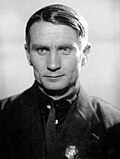

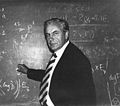
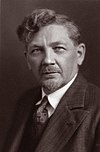









- ethnologist, anthropologist and biologist
- Shuttle Buranprogramme.
- geochemist
- George Vernadsky – historian
- Nikolay Ilyich Storozhenko, literary historian
- Nikolay Vladimirovich Storozhenko, historian
- Valentin Glushko – rocket scientist, a pioneer in rocket propulsion systems, and a major contributor to Soviet space and defense technology
- agronomist and biologist
- evolutionary biologist
- Mikhail Ostrogradsky – mathematician
- New Chronology
- Anton Makarenko – one of the founders of Soviet pedagogy
- Vladimir Chelomey – mechanics scientist, aviation and missile engineer who invented the first Soviet pulse jet engine
- Vasyl Sukhomlynsky – humanistic educator in the Soviet Union who saw the aim of education in producing a truly humane being
- Boris Paton– Soviet mechanical scientist and engineer, famous for his works in electric welding
- engineering mechanics
- Leonid Kulik – mineralogist who is noted for his research into meteorites
- Viktor Bunyakovsky – mathematician
- Yuri Lysianskyi– explorer
- George Kistiakowsky – physical chemistry professor
- Alexander Kistiakowsky – ornithologist and a specialist on bird lice
- Bogdan Kistyakovski – philosopher and social scientist
- Yuri Denisyuk – Soviet physicist, one of the founders of optical holography. He is known for his great contribution to holography, in particular for the so-called "Denisyuk hologram"
- Valentin Bliznyuk – aircraft designer, Chief Designer of the Tu-160
- Mikhail Kravchuk – mathematician
- Gury Marchuk - Soviet scientist in the fields of computational mathematics, and physics of atmosphere
- Rostislav Grigorchuk - mathematician working in different areas of mathematics including group theory, dynamical systems, geometry and computer science
- Vsevolod Tkachuk - Soviet chemist and academic
- Valery Kostuk– Russian scientist who has contributed to the development of processes for producing gases and cryogenic liquids
- Alexei Fedchenko - explorer and naturalist
- Vitaly Nikolayenko - natural scientist
- Boris Fedtschenko - phytopathologist, son of Alexei
- Caesar Korolenko - psychiatrist
- Pyotr Kashchenko – psychiatrist, social and agrarian activist, author of articles on mental health and mental health services
- Alexander Dovzhenko - Soviet psychiatrist
- Yuri Savenko - psychiatrist
- Oleg Gazenko – scientist, general officer in the Soviet Air Force and the former director of the Institute of Biomedical Problems in Moscow
- Alexander Zasyadko– Russian Imperial gunner and specialist in rocketry
- Praskov′ja Georgievna Parchomenko – Soviet astronomer who discovered many minor planets between the years of 1930–1940
- Valery Glivenko – mathematician
- Yulij Ilyashenko - mathematician
- Alexandr Mishchenko - mathematician
- Felix Tarasenko - mathematician
- Nikolai Yanenko - Soviet mathematician
- Igor Simonenko – mathematician
- Sergei Starchenko - mathematical logician
- Ivan Fesenko - mathematician
- Anatol Slissenko - Soviet mathematician and computer scientist
- Yuri Nesterenko– mathematician
- Sergei Rudenko – prominent Soviet anthropologist and archaeologist who discovered and excavated the most celebrated of Scythian burials, Pazyryk in Siberia
- Dmitri Bondarenko - anthropologist and historian
- Konstantin Dushenko - historian
- Aleksandr Nazarenko - historian
- Vladimir Lysenko – Russian academic
- Vyacheslav Tishchenko - chemist
- Anatoly Babko – chemist
- Nikolai Fedorenko - Soviet philologist, orientalist, statesman, public figure, professor (1953), and corresponding member of the Soviet Academy of Sciences (1958)
- Nikolay Fedorenko - economist and chemist
- Victor Ovcharenko - philosopher, sociologist, historian and psychologist
- Anna Stetsenko, Soviet psychologist
- Alexander Barchenko – biologist and researcher of anomalous phenomena from St. Petersburg
- Boris Kholodenko - biologist
- Mariya Sergeyenko – Soviet scholar of Roman history and philologist
- Alexander Nikitenko– historian, censor, Professor of Saint Petersburg
University, and ordinary member of St. Petersburg Academy of Sciences
- Andrey Yevgenyevich Lichko– psychiatrist
- Fyodor Pirotsky – inventor of the world's first railway electrification system and electric tram
- Vladimir Podvysotsky– pathologist, endocrinologist, immunologist and microbiologist
- Arkhip Lyulka – Soviet scientist and designer of jet engines, head of the OKB Lyulka, member of the USSR Academy of Sciences
- Nikolai Kibalchich – rocket pioneer
- Nikolai Zarudny – explorer and zoologist who studied the flora and fauna of Central Asia
- Pyotr Zinchenko – developmental psychologist
- Dmitri Ivanenko – theoretical physicist
- Nikolay Burdenko – Soviet surgeon, the founder of Russian neurosurgery
- Vladimir Nemoskalenko – physicist
- Vladimir Martynenko – sociologist, economist, and political scientist; Doctor of political sciences, Professor, Chief Scientific Officer, Institute of Socio-Political Studies under the Russian Academy of Sciences (ISPI RAN).
- Pyotr Yefimenko – ethnographer and historian
- Evgenia Kirichenko – historian of architecture and art
- Vasyl Stepanchenko — Soviet aircraft designer, Hero of Socialist Labor
- Antonina Prikhot'ko– experimental physicist
- Valery Tereshchenko (academic) - Russian−Soviet academic
- Konstantin Buteyko, the creator of the Buteyko method for the treatment of asthma and other breathing disorders
- Anatoly Kondratenko – theoretical physicist
- Evgeny Dobrenko – historian
- Vladimir Marchenko– mathematician
- Vladislav Shevchenko - astronomer
- Boris Evgenyevich Votchal– Academician of the USSR Academy of Medical Sciences (since 1969), Honored Scientist of the Russian Federation (1966), one of the founders of the clinical pharmacology in Russia
- Victor Linetsky – petroleum hydrogeologist
- Alexander Andreevich Samarskii– mathematician
- Vasily Omeliansky– microbiologist and author of the first original Russian text book on microbiology
- Nikolai Cholodny - Soviet microbiologist
- Yakub Holovatsky– historian
- Nikolay Dikansky – physicist
- Nikolai Belelubsky - academic specialising in railway and civil engineering
- Boris Struminsky – physicist known for his contribution to theoretical elementary particle physics
- wireless communicationsand digital beamforming
- Sergiy Vilkomir – computer scientist
- Yuri Kivshar – physicist
- Stepan Kozhumyaka – engineer, bridge-builder and linguist
- Klyment Kvitka – musicologist and ethnographer
- Nikolay Gamaleya – Soviet physician and scientist who played a pioneering role in microbiology and vaccine research
- Vladimir Dybo – specialist in comparative historical linguistics and accentology
- Alexander Bogomolets– pathophysiologist
- Vladimir Shcherbina- Soviet geochemist and mineralogist
- Boris Grabovsky – one of the pioneers of television, invented the first fully electronic TV set (video transmitting tube and video receiver), which was demonstrated in 1928
- Lev Pisarzhevsky – chemist
- Sergei Winogradsky – microbiologist, ecologist and soil scientist who pioneered the cycle-of-life concept
- Yuri Linnik – Soviet mathematician active in number theory, probability theory and mathematical statistics
- botanist
- Platon Poretsky – noted Russian Imperial astronomer, mathematician, and logician
- epidemiologistand the founder of the world's first research department of epidemiology
- Oleksandr Harmash– Soviet scientist in the field of production line methods in construction (construction engineering)
- St. Petersburg
- Evgeny Paton – Soviet mechanical scientist and engineer, famous for his works in electric welding
- Vladimir Betz – anatomist and histologist, famous for the discovery of giant pyramidal neurons of primary motor cortex
- Alexander Gorban – physicist and biologist
- Kirill Tolpygo – physicist
- Mikhail Fedoruk – rector of Novosibirsk State University, Doctor of Physics and Mathematics
- zoologist, prolific helminthologist and copepodologist
- plant biology
- Alexander Zaporozhets – Soviet developmental psychologist
- Zenon Ivanovich Borevich– mathematician
- EEG and the evoked potentialof the mammalian brain
- Mikhail Tugan-Baranovsky – economist
- Dmitry Grigorovich– Soviet aircraft designer
- Viktor Sadovnichiy – mathematician, winner of the 1989 USSR State Prize, and since 1992 he has been the rector of Moscow State University
- Osip Bodyansky – Slavist
- Pavlo Zhytetsky – linguist, philologist, ethnographer and literary historian, Doctor of Russian Literature (1908)
- Eugene Miroshnichenko - historian
- Serhii Plokhy - historian
- Pavel Chubinsky– ethnographer and geographer
- Mikhail Grushevsky– historian
- Anatoly Sagalevich - explorer who, since 1995, has worked at the Shirshov Institute of Oceanology of the Russian Academy of Sciences (USSR Academy of Sciences until 1991)
- Anatoly Vishnevsky - demographer and economist
- psychic healer
Politics

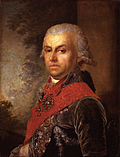


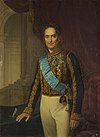



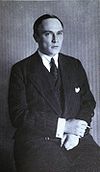








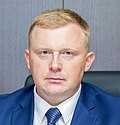
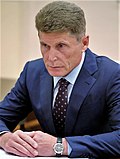
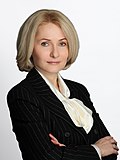



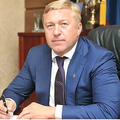

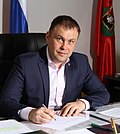



- Konstantin Chernenko (1911–1985), leader of Soviet Union from 1984 to 1985
- Alexander Bezborodko – Grand Chancellor of Russian Empire and chief architect of Catherine the Great's foreign policy
- Alexander Kushelev-Bezborodko - Imperial nobleman and politician
- Pyotr Zavadovsky – Russian Imperial statesman
- Grigory Kozitsky - Cabinet Secretary of Catherine II
- Prosecutor General (1814–17), Privy Councilor, senator, owner of the serf theater
- Andrey Razumovsky – Russian Imperial diplomat who spent many years of his life in Vienna
- Alexey Razumovsky– Acting Chamberlain (1775), Senator (1776–1807), Minister of Public Education (1810–1816). Active Privy Councillor (1807)
- Peter P. Dubrovsky - bibliophile, diplomat, paleographer, secretary of the Russian Embassy in France, collector of manuscripts and books
- Viktor Kochubey – Russian statesman and a close aide of Alexander I of Russia
- Pyotr Kapnist – Russian Imperial diplomat and ambassador to Austria (1895–1904)
- Grigoriy Shcherbina - Russian Imperial diplomat
- Mikhail Rodzianko – chamberlain of the Imperial family, Chairman of the State Duma and one of the leaders of the February Revolution of 1917
- Mikhail Tereshchenko – minister of Foreign Affairs of the Russian Provisional Government (1917)
- Bolshevik leader and diplomat, one of the leaders of the October Revolution
- Bolshevik revolutionary, one of the leaders of the October Revolution
- Alexandra Kollontai – revolutionary, politician, diplomat and Marxist theoretician. Serving as the People's Commissar for Welfare in 1917–1918, she was the first woman in history to become an official member of a governing cabinet.
- Nikolai Podvoisky – Bolshevik revolutionary and Soviet statesman, one of the leaders of the October Revolution
- Kronstadt Commune, and the leader of the revolutionary committee which led the Kronstadt rebellionof 1921.
- Dmitry Kursky – Prosecutor General of the Russian SFSR (1922–1928)
- Bolshevikrevolutionary, headed the "special department" of the Soviet secret police apparatus, believed to have been in charge of the Soviet Union's concentration camp system.
- Boris Shcherbina, a Soviet politician who served as a vice-chairman of the Council of Ministers from 1984 to 1989.Supervisor of Soviet crisis management during 1986 Chernobyl disaster and the 1988 Armenian earthquake.
- Treaty on the Creation of the USSR, one of the officials responsible for implementing Stalin's policies such as collectivization.
- Vsevolod Balitsky – Soviet official, Commissar of State Security 1st Class (equivalent to Four-star General) of the NKVD and a member of the Central Committee of the Communist Party of the Soviet Union
- Yakov Malik – Soviet diplomat, Soviet ambassador to the United Kingdom, known for giving the USSR justifications for the occupation of Czechoslovakia at the Security Council in August 1968
- Georgy Korniyenko - Soviet diplomat
- Efim Shchadenko - Soviet colonel general who served as Deputy People's Commissar of Defense during the early years of World War II
- Vyacheslav Kovalenko - diplomat
- Ivan Nosenko - People's Commissar for Shipbuilding of the USSR
- Yuri Nosenko - KGB officer who defected to US
- Ivan Savchenko - Soviet KGB general
- Vitaly Yurchenko - KGB officer
- Valery Tereshchenko (diplomat) - diplomat and ambassador
- Alexander Yakovenko (diplomat) - diplomat
- Yuriy Kotsiubynsky – Bolshevik politician
- National Communism
- Dmitry Polyansky – Soviet-Russian statesman who was First Deputy Chairman of the Council of Ministers of the Soviet Union from 1965 to 1973. From 1958 to 1962 he was Chairman of the Council of Ministers of the Russian SFSR, equivalent to a Premier in of one of the 15 Soviet Socialist Republics that comprised the Soviet Union.
- Ambassador of the Soviet Union to Czechoslovakia
- Alexander Zasyadko – Soviet economic, state and party leader
- Soviet Russia
- Alexander Tsiurupa – Bolshevik leader, Soviet statesman, Vice Chairman and, later, Chief of food of Soviet Russia
- Vasyl' Shakhrai – Bolshevik revolutionary
- Supreme Soviet of the USSR(1965–1977)
- Moldavian Communist Party
- Alexander Danieliuk-Stefanski – member of the Russian Social Democratic Labor Party
- Pyotr Shelest, Deputy Chairman of the Council of Ministers of the Soviet Union, Full member of the 22nd, 23rd, 24th Politburo.
- Leonid Korniyets - Soviet politician
- Alexei Kirichenko– Second Secretary of the Communist Party of the Soviet Union (17 December 1957 – 5 April 1960)
- Vladimir Ivashko – Soviet politician, briefly acting as General Secretary of the Communist Party of the Soviet Union. Deputy General Secretary of the Communist Party of the Soviet Union (1990–1991)
- Nikolai Demchenko – the first deputy commissar of agriculture of the USSR, People's Commissar of Grain and Livestock Farms of the USSR
- Ivan Demchenko - deputy of the 5th, 6th, 7th, and 8th State Dumas
- Stepan Chervonenko – Soviet ambassador to Peking
- Igor Gouzenko – cipher clerk for the Soviet embassy to Canada in Ottawa, Ontario
- Grigory Grinko– finance minister of the Soviet Union (1930–1937)
- Nikolay Gikalo- Soviet revolutionary and statesman.
- Viktor Polyanichko – Soviet and Russian diplomat and politician, a people's deputy of the USSR, a people's deputy of the Azerbaijan SSR, a deputy of the Chelyabinsk Regional Council of Workers' Deputies, and a delegate of the 23rd Congress of the Communist Party of the Soviet Union
- Vlas Chubar – finance minister of the Soviet Union (1937–1938)
- Ivan Kazanets – the minister of ferrous metallurgy of the Soviet Union
- Gorbachev Era
- Vitaly Fedorchuk – KGB officer and Minister of Interior Affairs of the Soviet Union
- Federal Service of Counter-intelligence of the Russian Federation
- Stepan Chervonenko – Soviet ambassador to Peking
- Vladimir Chub – the governor of Rostov Oblast in Russia from 1991 until 2010
- Vitaly Mukha – politician, who served as the 1st and third Governor of Novosibirsk Oblast from 1991 to 1993 and from 1995 to 2000
- Sergey Kiriyenko (half Ukrainian) – Prime Minister of Russia
- Sergei Shmatko - Russia's Minister of Energy from May 2008 until May 2012
- Aleksandr Skorobogatko – billionaire businessman and former deputy member in the State Duma, having represented the Liberal Democratic Party of Russia (2003–2007) and United Russia (2007–2016)
- Andrey Goncharenko, Russian billionaire businessman
- Georgy Poltavchenko – former governor of Saint Petersburg
- Irina Panchenko - politician and former Member of the State Duma from Chukotka Autonomous Okrug (2003–2007)
- Sergey Bidonko - deputy of the 7th and 8th State Duma convocations
- Yelena Bondarenko (Russian politician) - Member of the State Duma for Stavropol Krai
- Nikolai Bondarenko - opposition politician and blogger, Member of the Saratov Oblast Duma for the Communist Party
- Igor Antropenko - political figure, deputy of the 8th State Duma convocation
- Nikolay Alexeyenko - deputy of the 8th State Duma convocation
- Viktor Khristenko – politician who was chairman of the board of the Eurasian Economic Commission (2012–2016); First Deputy Prime Minister of Russia (1999–2000); Minister of Industry (2004–2012)
- Sergei Aleksashenko– economist and former government official. He was the deputy finance minister and first deputy chairman of the board of the Central Bank of Russia from 1995 to 1998.
- Kremlin Chief of Staff
- Alexander Novak – Deputy Prime Minister of Russia since 2020
- Sergey Kislyak – Russia's Ambassador to the United States (2008–2017)
- Sergey Shakhray – co-author of the Constitution of the Russian Federation
- Irina Yarovaya – Deputy Chairman of the State Duma from United Russia Party and a member of United Russia's General Council
- Anatoly Brovko – Russian politician who served as the governor of Volgograd Oblast
- Viktoria Abramchenko – Deputy Prime Minister of the Russian Federation with responsibility for Agro-Industrial Complex, Natural Resources and Ecology.
- Vladimir Timoshenko – career diplomat and is a former ambassador of the Russian Federation to Benin
- Alexei Didenko – politician, deputy of the Tomsk Oblast Duma
- Aleksandr Drozdenko – economist and politician. He has been Governor of Leningrad Oblast since 28 May 2012.
- Andrey Doroshenko - deputy of the 8th State Duma
- Sergei Sobko- chairman of the Russian Christian-Social Movement and deputy of the State Duma representing the Communist Party of the Russian Federation
- Aleksandr Gamanenko - member of the Communist Party of the Russian Federation
- Andrey Andreychenko – member of the State Duma of the VII convocation between 31 May 2017 and 12 October 2021, and a member of the Legislative Assembly of Primorsky Krai of the VI convocation from 18 September 2016 to 24 May 2017.
- Andrey Ishchenko – politician who currently serves as a member of parliament in the Legislative Assembly of Primorsky Krai
- Yevgeny Nazdratenko – 2nd Governor of Primorsky Krai
- Oleg Kozhemyako – the Governor of Primorsky Krai since 2018.[citation needed] Previously he was the Governor of Sakhalin Oblast, Russia.
- Andrey Tarasenko – politician and former army officer who is currently the Chairman of the Government of the Republic of Sakha (Yakutia) since 31 July 2020
- Nikolai Kondratenko – politician, long time Governor of Krasnodar Krai, runner-up candidate of the Communist Party (CPRF) in 2003
- Vasily Yakemenko -politician, creator and leader of several pro-government youth groups
- Igor Belchuk – politician and businessman who had served as the acting Governor of Primorsky Krai in spring 2001.
- Konstantin Chuychenko – politician, businessman, and lawyer who served as the Minister of Justice since 21 January 2020
- Dmitry Grigorenko – a Russian politician serving as Deputy Prime Minister of the Russian Federation and Chief of the Government Staff assumed office in January 2020
- Vitaly Mutko – politician who served as the Deputy Prime Minister of Russia from 2016 to 2020
- Mikhail Murashko – physician and a politician, serving as the Minister of Health of the Russian Federation since 21 January 2020
- Gennadiy Onishchenko– government official who was the Chief Sanitary Inspector of Russia from 1996 to 2013
- Dmitry Chernyshenko – businessman and politician serving as Deputy Prime Minister of Russia for Tourism, Sport, Culture and Communications since 2020
- Alexander Prokopchuk – employee of the internal affairs agencies, head of the Ministry of Internal Affairs of the Russian Federation National Central Bureau of Interpol from 14 June 2011, and vice-president of Interpol from 10 November 2016
- Alexey Overchuk – politician serving as Deputy Prime Minister of the Russian Federation from 21 January 2020
- Valery Limarenko – current Governor of Sakhalin Oblast, a federal subject of Russia from 2018
- Vladimir Babenko - first Head of Administration of Tambov Oblast from 1991 to 1995
- Alexander Grushko – diplomat, and is currently Deputy Minister of Foreign Affairs, since 22 January 2018. Previously, he was the Permanent Representative of Russia to NATO, serving from 2012 to 2018.
- Sergey Veremeenko - businessman and politician
- Sergey Krivenko - journalist, publicist, and editor
- Vladimir Strelchenko -mayor of Khimki since 2005 to 2012
- Vladimir Shumeyko – 1st Chairman of the Federation Council, First Deputy Prime Minister
- Viktor Tomenko - statesman who is currently serving as the Governor of Altai Krai since 17 September 2018
- Boris Tolpygo - Soviet Communist politician, chairman of the executive committee of Soviet of Lower Amur Oblast in 1936-1938
- Albert Krivchenko- political figure who served as the 1st Governor of Amur Oblast
- Igor Panchenko - politician who served as a senator from Tula Oblast from 14 October 2021 until his death
- Yevgeny Savchenko - Senator of Belgorod Oblast on legislative authority
- Taras Khtey – Senator of Belgorod Oblast
- Vladimir Dyachenko - Head of Administration of Amur Oblast from 1994 to 1996
- Vasily Yurchenko - Governor in Novosibirsk Oblast (2010–2014)
- Yury Lyashko - statesman, who had served as the 5th governor of the Amur Oblast from 1996 to 1997. He also served as the 1st mayor of Blagoveshchensk from 1991 to 1996
- North Ossetiasince 9 April 2021
- Pyotr Marchenko- politician, who was the deputy of the Stavropol Krai Duma, a chairman of the Stavropol Krai Duma committee on security, inter-parliamentary relations, veteran organizations and the Cossacks in 2011–2021
- Sergey Levchenko - politician and member of the 8th State Duma
- Yekaterina Kharchenko - political figure and deputy of the 8th State Duma
- Sergey Ivanenko - economist and politician
- Alexey Kornienko (politician) - political figure and a deputy of the 5th, 6th, 7th, and 8th State Dumas
- Natalya Kostenko - political figure and deputy of the 7th and 8th State Dumas
- Evgeny Gromyko - politician who served as a senator from Krasnodar Krai from 2014 to 2015
- Alexander Filipenko - politician, the former governor of Khanty-Mansi Autonomous Okrug
- Valery Potapenko - the 5th Governor (Head) of Nenets Autonomous Okrug from 2006 to 2009
- Leonid Gorbenko - 2nd Governor of Kaliningrad Oblast in 1996, serving in that office until 2000
- Oleg Savchenko (politician, born 1948) - politician and businessman who had served as the second Governor of Kaluga Oblast in 1996
- Dmitry Dmitriyenko - former Governor of Murmansk
- Oleg Savchenko (politician, born 1966) - deputy of the 4th, 5th, 6th, and 8th State Dumas
- Denis Kravchenko - deputy of the 8th State Duma
- Andrey Rostenko - former Mayor of Yalta
- Vladimir Rushailo - Minister of Internal Affairs (21 May 1999 – 28 March 2001)
- Valentina Petrenko - Senator from Khakassia from 2001 to 2011
- Dmitry Vasilenko (politician) - senator from Leningrad Oblast since 7 October 2021
- Olga Pilipenko - deputy of the 7th and 8th State Dumas
- Tatiana Kusayko - member of the Federation Council between 2016 and 2021 and deputy of the 8th State Duma since 2021
- Aleksey Lavrinenko - deputy of the 7th and 8th State Dumas
- Mikhail Tarasenko - deputy of the 8th State Duma
- Alexander Yushchenko - deputy of the 6th, 7th, and 8th State Dumas
- Alexander Teterdinko - deputy of the 8th State Duma
- Yevgeny Revenko - deputy of the 7th State and 8th State Dumas
- Sergei Storchak - politician who had former served as the a Deputy Finance Minister of Russia
- Nikolay Vinnichenko - federal state civilian service rank of 1st class Active State Councillor of the Russian Federation
- Oleg Melnichenko - Chairman of the Federation Council Committee on Federal Structure, Regional Policy, Local Self-Government and Northern Affairs
- Vitaliy Khotsenko - Acting Governor of Omsk Oblast since March 2023
- Valentina Rudchenko - current Speaker of the Duma of Chukotka Autonomous Okrug
- Yevgeny Marchenko (politician) - deputy of the 7th and 8th State Dumas
- Andrey Alekseyenko - politician and economist who served as mayor of Krasnodar from 2021 to 2022
- Valeriy Raenko - Chairman of the Legislative Assembly of Kamchatka Krai (2011–2021)
- Sergey Kravchuk - politician who is currently the third mayor of Khabarovsk since 25 September 20
- Aleksandr Nazarchuk - Minister of Agriculture of Russia (1994–1996)
- Oleg Valenchuk - deputy of the 5th, 6th, 7th, and 8th State Dumas
- Boris Kovalchuk - official who has served as Chairman of the Accounts Chamber of Russia since 2024
- Alexander Yaroshuk - Russian Federation Senator from Kaliningrad Oblast
- Larisa Opanasyuk - lawyer and politician
- Vasily Tarasyuk - Deputy Chairman of the State Duma's Committee on Natural Resources and Utilization
- Mikhail Kislyuk - politician who had last served as the 1st Governor of Kemerovo Oblast from 1991 to 1997
- Sergey Smetanyuk - politician who lasted served as the acting Governor of Tyumen Oblast in November 2005, and the head of the Tyumen administration from 2005 to 2007
- Ilya Seredyuk - Governor of Kemerovo Oblast since 15 May 2024
- Khanty–Mansi Autonomous Okrugsince 30 May 2024
- Andrey Golovatyuk - member for the LDPR of the State Duma of Russia
- Nikolay Olshansky - senator from Voronezh Oblast from 2011 to 2013
- Mikhail Prusak - governor of Novgorod Oblast from 1991 to 2007
- Tatiana Lobach - deputy of the 8th State Duma
- Nikolay Maksyuta - governor of Volgograd Oblast from 1997 to 2010
- Dmitry Belik – politician who is currently a member of parliament in the State Duma of the VII convocation, a member of the United Russia party, and a member of the State Duma committee on control and regulations and a member since 5 October 2016
- Vladimir Medinsky – Russia's Minister of Culture (2012–2020)
- Natalia Poklonskaya – politician, diplomat, serving as deputy head of Rossotrudnichestvo since 2 February 2022
- Alexei Navalny – Russian opposition leader, lawyer, and anti-corruption activist
- Andrii Derkach - Member of the Russian Federation Council, former member of Verkhovna Rada (1998–2020)
- Konstantin Basyuk - Senator
- Yury Savenko - 3rd Mayor of Kaliningrad (11 November 1998 – 7 November 2007)
- Republic of Khakassia, and a member of the Federation Council Committee on Defense and Security from 2018 to 2023
- Galina Munzuk - politician who served as a senator from Tuva from 2011 to 2014
- Konstantin Pilipchuk - male acrobatic gymnast medalled at five Acrobatic Gymnastics World Championships
- Stepan Kirichuk - politician and former railway worker who has been a member of the Tyumen City Duma since 9 September 2018
- Nikolay Kondratyuk (politician) - Senator of the executive authority of Penza Oblast since 21 December 2021
- Alexander Aksyonenko - Member of the State Duma for Novosibirsk Oblast
- Maksim Mishchenko - politician, deputy of the State Duma, founder and leader of the youth movement Young Russia
- Nikolai Semashko – Russian politician, Minister of Health of Soviet Union
- Yury Nimchenko - military officer and politician serving as the senator from Crimea since 12 September 2024
- Aleksey Kondratenko - politician serving as a senator from Krasnodar Krai since 22 September 2015
- Vitaly Nazarenko - politician serving as a senator from North Ossetia–Alania since 25 September 2018
- Vyacheslav Timchenko (politician) - politician serving as a senator from Kirov Oblast since 2014, currently serving on legislative authority as of 2016
- Dmitry Vasilenko (politician) - politician serving as a senator from Leningrad Oblast since 7 October 2021
- Andrey Anatolyevich Shevchenko - politician, who is currently the senator of legislative authority of Orenburg Oblastin the Federation Council since 27 September 2016, and is the Chairman of the Federation Council Committee on the Federal Structure, Regional Policy, Local Self-Government and Affairs of the North
- Vladimir Kravchenko (politician) - politician serving as a senator from Tomsk Oblast since 14 October 2021
- Vitaly Ignatenko - journalist and politician who had been the head of ITAR-TASS news agency from 1993 until 2012 and had served in the cabinet of Prime Minister Viktor Chernomyrdin from 1995 to 1997 as deputy prime minister
- Alexey Dmitrienko - politician who served as a senator from Penza Oblast from 2016 to 2020
- Anastasia Rybachenko - member of the Political Council, the head of the Youth Committee and a spokesperson with the Moscow branch of the "Solidarnost" movement from March 2008 to June 2012
- Yelena Zlenko - politician who is a member of the Federation Council from the executive authority of Yamalo-Nenets Autonomous Okrug since 18 September 2018
- Sergei Prikhodko (politician) - First Deputy Head of the Russian Government Office (19 May 2018 – 26 January 2021)
- Vladimir Litvinenko - academic, businessman and Vladimir Putin's campaign manager
- Viktor Gerashchenko - Chairman of the State Bank of the USSR, then Governor of the Bank of Russia during much of the Perestroika and post-Perestroika periods
- Olga Litvinenko - ex-politician
Cosmonauts

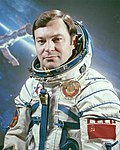

- Georgy Beregovoy, Soviet cosmonaut No.12, Soviet MP in 1974–89 representing Donetsk region
- Leonid Kizim, Soviet cosmonaut
- Yuri Romanenko, Soviet cosmonaut
- Georgy Grechko, Soviet cosmonaut
- Anatoly Levchenko, Soviet cosmonaut
- Anatoly Filipchenko, Soviet cosmonaut
- Oleg Grigoriyevich Kononenko, Soviet cosmonaut
- cosmonaut
- Anatoly Artsebarsky, Soviet cosmonaut
- Igor Volk, Soviet cosmonaut
- Pavel Popovich, Soviet cosmonaut No.4, Verkhovna Rada MP in 1964–88, head of Ukrainian diaspora in Moscow
- Georgy Dobrovolsky, Soviet cosmonaut
- Aleksandr Poleshchuk, Russian cosmonaut
- Roman Romanenko, Russian cosmonaut
- Yury Onufriyenko, Russian cosmonaut
- Yuri Malenchenko, Russian cosmonaut
- Andrey Borisenko, Russian cosmonaut
- Yuri Gidzenko, Russian cosmonaut
Military
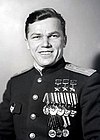



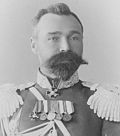

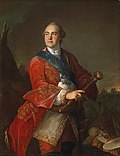
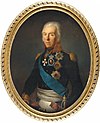

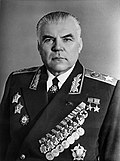

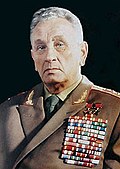









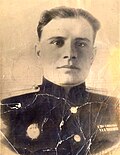





- Right-Bank Ukraine(1665–1672) and a Russian voivode
- Maksym Zalizniak - Cossack and leader of the Koliivshchyna rebellion
- Alexander Lebed – late Lieutenant General of Russia, 1996 Presidential candidate (Ukrainian origin)
- Russian Imperial Army
- Russian Imperial Army
- Nikolai Linevich – career military officer, General of Infantry (1903) and Adjutant general in the Imperial Russian Army in the Far East during the latter part of the Russo-Japanese War.
- Alexander Mikhailovsky-Danilevsky - Russian Imperial military figure
- Ivan Gudovich – Russian noble and military leader
- Vasily Zavoyko – an admiral in the Russian Imperial navy, In 1854, during the Crimean War, he led the successful defence against the Siege of Petropavlovsk by the allied British-French troops
- Pavel Mishchenko – Imperial Russian career military officer and statesman of the Imperial Russian Army
- Ivan Grigorovich served as Imperial Russia's last Naval Minister from 1911 until the onset of the 1917 revolution.
- Port Arthur during the Russo-Japanese Warof 1904–1905
- Alexey Schastny – Russian naval commander during World War I
- Yuriy Tyutyunnyk - Russian Imperial Officer
- fighter ace, considered to be the highest-scoring Soviet and Allied fighter pilot of World War II
- Pavel Rybalko – commander of armoured troops in the Red Army during and following World War II.
- Alexei Berest – Soviet political officer and one of the three Red Army soldiers who hoisted the Victory Banner
- Ivan Bezugly - Soviet Red Army officer who served as commander of the Red Army's 5th Airborne Corps in 1941, the first airborne corps of the Red Army to fight in World War II after the German invasion of the Soviet Union on 22 June 1941
- Fedor Zinchenko – Soviet officer who commanded the 150th Rifle Division's 756th Regiment during the Storming of the Reichstag.
- Dmitry Lavrinenko – Soviet tank commander and Hero of the Soviet Union. He was the highest scoring tank ace of the Allies during World War II.
- Wilhelm Gustloff. The most successful Soviet submarine commander in terms of gross register tonnage(GRT) sunk.
- Dmitry Lelyushenko, Soviet military commander, his final actions in 1945 involved directing forces during the Red Army's attacks on both Berlin and Prague.
- Kuzma Derevyanko – general of the Red Army. He was the representative of the Soviet Union at the ceremonial signing of the written agreement that established the armistice ending the Pacific War, and with it World War II
- Semyon Timoshenko – Marshal of the Soviet Union
- Andrey Yeryomenko – Soviet general during World War II and, subsequently, a Marshal of the Soviet Union
- Panteleimon Ponomarenko – a Soviet statesman and politician and one of the leaders of Soviet partisan resistance during WW2
- Alexander Utvenko – Red Army Lieutenant general
- Matvey Kononenko - Soviet general
- Feofan Parkhomenko - Soviet general
- Ivan Sidorovich Lazarenko - Red Army major general and a posthumous Hero of the Soviet Union
- Fedir Dyachenko – Soviet sniper during World War II, credited with as many as 425 kills.
- Nikolai Pinchuk (pilot) – Soviet fighter pilot and flying ace during World War II who totaled 20 solo and 2 shared aerial victories
- Kirill Moskalenko – marshal of the Soviet Union
- Ivan Taranenko – Soviet fighter pilot, flying ace, and regimental commander in World War II who went on to become a general
- Sergei Rudenko (general) – Soviet Marshal of the aviation
- Petro Hryhorenko - Soviet Army general, professor of cybernetics at the Frunze Military Academyand chairman of its cybernetic section who became a dissident and a writer
- Vasily Khomenko - Soviet army commander, and lieutenant general
- Prokofy Romanenko - Soviet general
- Grigory Panchenko - Soviet Army major general and a Hero of the Soviet Union who held divisional commands during World War II
- Grigory Kulik – marshal of the Soviet Union
- Trofim Kolomiets - Soviet Army commander
- Pyotr Koshevoy – Soviet military commander and a Marshal of the Soviet Union
- Alexei Burdeinei– Soviet general
- Pavel Batitsky – Soviet military leader awarded the highest honorary title of Hero of the Soviet Union in 1965 and promoted to Marshal of the Soviet Union in 1968
- Alexei Radzievsky - professional soldier of the Soviet Union who fought in the Second World War, commanding the 2nd Guards Tank Army during the Lublin–Brest offensive and afterwards
- Ivan Pavlovsky - Soviet military leader, Commander-in-Chief Ground Forces - Deputy Minister of Defense of the Soviet Union (1967–1980), and a General of the Army (1967)
- Anatoly Petrakovsky - Soviet Army major general and Hero of the Soviet Union
- Ivan Moshlyak – Soviet major general who received the highest honorary title of Hero of the Soviet Union in 1938 for his heroism during the Battle of Lake Khasan
- Pyotr Gnido – Soviet fighter pilot during World War II who was credited with 34 solo and 6 shared aerial victories, and recipient of the title of Hero of Soviet Union
- Stepan Rybalchenko - Soviet Air Force colonel-general
- Sergey Fomenko, Soviet general
- Nikolay Dyatlenko – Soviet officer, interrogator and translator who was part of a team that attempted to deliver a message of truce (sometimes referred to as an "ultimatum") to the German Sixth Army at the Battle of Stalingrad in January 1943
- Grigory Kravchenko – test pilot who became a flying ace and twice Hero of the Soviet Union in Asia before the start of Operation Barbarossa
- Mikhail Grigoryevich Bondarenko - captain-lieutenant in Soviet Navy during World War II who was awarded the title Hero of the Soviet Union for his actions in the Kerch-Eltigen operation
- Nikita Lebedenko - Soviet Army lieutenant general and a Hero of the Soviet Union
- Nikolay Lebedenko - 20th century Imperial Russian military engineer
- Mikhail Ivanovich Bondarenko (1901–1943) - artillerist of the Soviet Army during World War II
- Mariya Borovichenko - Soviet medical officer
- Grigory Mitrofanovich Davidenko - Soviet soldier, Hero of the Soviet Union (1944)
- Vasily Davidenko (general) - Soviet military figure, Hero of the Soviet Union (1943)
- Aleksandr Gorgolyuk - Soviet fighter pilot in World War II
- Ivan Dubovoy - Soviet Army major general of tank forces and a Hero of the Soviet Union
- Aleksey Burdeyny - Soviet colonel general who held corps command during World War II
- Stepan Borozenets - Soviet Air Force colonel and a Hero of the Soviet Union
- Yakov Novichenko - Soviet military officer
- Ivan Golubets – Soviet sailor with the Black Sea Fleet
- Vladimir Sudets – Soviet air commander during World War II, commanding the 17th Air Army, and later became Marshal of the aviation after the war
- Pyotr Vershigora – one of the leaders of the Soviet partisan movement in Ukraine, Belarus and Poland
- Pyotr Braiko – Soviet soldier during the Second World War who gained the status of Hero of the Soviet Union following the conflict
- Vasyl Herasymenko– Soviet military leader
- Nikolai Reznichenko- military officer
- Anatoly Nikolayevich Levchenko - Soviet fighter pilot in the 655th Fighter Aviation Regiment of the 40th Army of the Turkestan Military District during the Soviet–Afghan War
- Oleg Koshevoy – Soviet partisan and one of the founders of the clandestine organization Young Guard, which fought the Nazi forces in Krasnodon during World War II between 1941 and 1945
- Mikhail Tsiselsky – Soviet naval pilot during World War II who was awarded the title Hero of the Soviet Union
- Ivan Turkenich – Soviet partisan, one of the leaders of the underground anti-Nazi organization Young Guard, which operated in Krasnodon district during World War II between 1941 and 1944
- Dmitry Glinka (aviator) – Soviet flying ace during World War II who was twice awarded the title Hero of the Soviet Union for his achievements, having scored 50 individual aerial victories by the end of the war.
- Boris Glinka – Soviet flying ace during World War II with over 20 solo shootdowns.
- Vasily Mykhlik – Ilyushin Il-2 pilot and squadron commander in the 566th Assault Aviation Regiment of the Soviet Air Forces during the Second World War who was twice awarded the title Hero of the Soviet Union.
- Alexey Perelet- Soviet pilot who was the principal test pilot for military aircraft prototypes produced by Tupolev during World War II.
- Leonid Beda – ground-attack squadron commander in the Soviet Air Forces during the Second World War who went on to become a Lieutenant-General of Aviation.
- Pavel Dubinda – sergeant in the Red Army during World War II and one of only four people that was both a full bearer of the Order of Glory and Hero of the Soviet Union
- Nikolai Simoniak – General in the Soviet Army during World War II
- Yuri Shvets – KGB officer
- Yepifan Kovtyukh – Soviet corps commander
- Ivan Mashchenko - Red Army colonel
- Ivan Kharchenko - Soviet Army engineering colonel
- Sergey Sheyko – Hero of the Russian Federation, is a colonel in Russian Naval Infantry
- Boris Dumenko – Red Army commander during the Russian Civil War
- Alexander Kravchenko (revolutionary) – revolutionary, agronomist and partisan who fought against Admiral Kolchak's White forces in Siberia in 1919 during the Russian Civil War
- Grigory Skiruta – WWII Red Army officer
- Andrey Baklan - Soviet flying ace during World War II
- Mikhail Badyuk - Soviet aviator in the 9th Guards Mine Torpedo Aviation Regiment of the 5th Mine-Torpedo Air Division in the Northern Fleet's aviation division during the Second World War
- Ivan Afanasenko - Red Army Sergeant and a Hero of the Soviet Union
- Zakhar Slyusarenko – WWII tank officer and brigade commander, twice awarded the title Hero of the Soviet Union
- Bogdan Stashinsky – KGBofficer and spy who assassinated the Ukrainian nationalist leaders in the late 1950s
- Yan Chernyak - World War II era spy who led a network of several dozen people in Germany working for the Soviet Union's military intelligence, the GRU
- Ivan Stepanenko – Soviet WWII flying ace with over 30 solo victories
- Fyodor Arkhipenko - flying ace of the Soviet Air Force during the Second World War and recipient of the title Hero of the Soviet Union
- Vladimir Sudets – Soviet WWII air commander, later marshal of aviation
- MVD
- Stepan Suprun – Soviet test pilot who tested over 140 aircraft types during his career
- Stanislav Jermak - military man and rocket and space systems scientist
- Pavel Taran – WWII Il-4 pilot, twice awarded the title Hero of the Soviet Union
- Ivan Taranenko – Soviet WWII fighter ace, later a general
- Semyon Timoshenko – Marshal of the Soviet Union
- Grigory Tkhor – Soviet aviator, Spanish Civil War and Second Sino-Japanese War volunteer, and major general of the Soviet Air Force
- Sergei Trofimenko – Soviet military commander, active in the Russian Civil War and Second World War
- Andrey Titenko - Soviet soldier who served during World War II and recipient of the title Hero of the Soviet Union
- 125th Guards Dive Bomber Regimentduring the Second World War who was honored with the title Hero of the Soviet Union on 18 August 1945
- Mikhail Tsiselsky – Soviet WWII naval pilot, awarded the title Hero of the Soviet Union
- Nikolai Martynyuk - Soviet naval officer
- Ivan Turkenich – Soviet partisan, a leaders of the anti-Nazi Young Guard during WWII
- Yelena Ubiyvovk – WWII partisan and leader of a Komsomol cell
- Nina Ulyanenko – navigator, pilot and flight commander in the women's 46th Taman Guards Night Bomber Aviation Regiment
- Nikolai Usenko – Red Army soldier, Hero of the Soviet Union
- Valentina Kravchenko - squadron navigator during World War II and Hero of the Russian Federation
- Nikolai Semeyko – Soviet Il-2 pilot and navigator during World War II who was twice awarded the title Hero of the Soviet Union.
- Grigory Vakulenchuk – sailor, organizer, and leader of the uprising on the Russian battleship Potemkin
- Pyotr Vershigora – Soviet partisan leader in Ukraine, Belarus and Poland
- Andrey Vitruk – Soviet Air Force general
- Aleksey Mitrofanovich Vlasenko - Soviet general
- Ilya Arkhipovich Vlasenko- Hero of the Soviet Union (1943)
- Polina Osipenko – Soviet military pilot
- Alexander Osipenko (pilot) - Soviet military aviator and, according to some accounts, the Soviet Air Forces' top ace in the Spanish Civil War
- Timofei Strokach – prominent military figure of the Soviet NKVD and KGB
- Ilya Amvrosievich Strokach – prominent military figure of the Soviet NKVD and KGB
- Oleg Ostapenko – the former director of Roscosmos, the federal space agency, retired Colonel General in the Russian Military, former Deputy Minister of Defence, and former commander of the Aerospace Defence Forces
- Fyodor Ostashenko - Soviet Army lieutenant general and a Hero of the Soviet Union
- Vladimir Sergeyevich Vysotsky– Russian admiral and Commander of the Russian Northern Fleet
- Viktor Yanukovych – fourth President of Ukraine
- Viktor Yanukovych Jr– Ukrainian politician and Member of Parliament
- Nikolai Yegipko – Soviet Navy officer, Hero of the Soviet Union
- Iosif Apanasenko – Soviet division commander
- Fyodor Kostenko – Soviet corps and army commander
- Ivan Drachenko – Soviet Il-2 pilot and the only aviator awarded both the title Hero of the Soviet Union and been a full bearer of the Order of Glory.
- Vitaly Zakharchenko – Former Minister of Internal Affairs of Ukraine
- Yekaterina Zelenko – WWII Soviet Su-2 pilot, flew during Winter War
- Yakov Cherevichenko – Soviet military leader and colonel general
- Kornei Andrusenko - Soviet colonel
- Nikolai Tsymbal - Soviet military officer
- Stepan Artyomenko – the commander of a battalion of the 447th Rifle Regiment in the Red Army during the Second World War, who was twice awarded the title Hero of the Soviet Union
- Ivan Boyko – the commander of the 69th Guards Tank Regiment and later the 64th Guards Tank Brigade during World War II; he was twice awarded the title Hero of the Soviet Union for his successful combat leadership
- Ivan Zaporozhets – Soviet security officer and official of the OGPU-NKVD
- Nikolai Zhugan - Air Force major general, a pilot during World War II, and Hero of the Soviet Union (1944)
- Vasily Zavoyko – Russian admiral, successfully defended against the Siege of Petropavlovsk
- Yevgeniya Zhigulenko – WWII Soviet Air Force pilot and navigator, Hero of the Soviet Union
- Filipp Zhmachenko – Soviet Army general, Hero of the Soviet Union
- Yakov Fedorenko, Soviet general during World War II
- Nikolai Lyashchenko - Soviet Army general
- Gordey Levchenko - Soviet naval commander and admiral
- Irina Levchenko – medic turned tank officer in the Red Army during World War II who was awarded the title Hero of the Soviet Union in 1965; she was also the first Soviet woman awarded the Florence Nightingale Medal
- Aleksandra Samusenko – Soviet T-34 tank commander and a liaison officer during World War II
- Fyodor Zozulya – admiral of the Soviet Navy
- Georgy Zozulya – WWII ground-attack pilot in the Soviet Air Force
- Andrei Girich – Soviet Air Force major general and Hero of the Soviet Union
- Anatoly Kvochur - Soviet and Russian test pilot
- Konstantin Kobets - army general
- Andrei Paliy – naval officer who served as the deputy commander of the Black Sea Fleet
- Aleksandr Chaiko– army officer who is currently the commander of the Eastern Military District since 12 November 2021
- Arseniy Golovko- Soviet admiral
- Aleksandr Golovko – colonel general in the Russian military and commander of the Russian Space Forces since 1 August 2015
- Sergey Kuralenko - military commander serving as the Head of the Main Directorate of Military Police of the Ministry of Defense of Russia
- Pavel Klimenko - major general
- Nikolai Krivoruchko - Russian and Soviet soldier
- Alexander Prokhorenko - Russian Spetsnaz officer
- Gennady Zhidko - colonel general of the Russian Armed Forces, was awarded the title Hero of the Russian Federation in 2017 for his service as chief of staff of Russian forces deployed to Syria
- Dmitry Klimenko - artillery officer and military commander, participant in the first and second Chechen wars, Hero of the Russian Federation (2000)
- Igor Tkachenko - military pilot with the rank of Colonel, Russian Knights group leader, Chief of the 237th Guards Aviation Showing Center of the Russian Air Force at Kubinka air base
- Valery Solodchuk – officer of the Russian Army
- Sergei Pinchuk – officer of the Russian Navy, currently holds the rank of vice-admiral, and is deputy commander in chief of the Black Sea Fleet
- Alexander Romanchuk – colonel general in the Russian Armed Forces
- Anatoly Nedbaylo – Il-2 pilot in the 75th Guards Assault Aviation Regiment of the Soviet Air Forces during the Second World War who was twice awarded the title Hero of the Soviet Union
- Vasily Mykhlik – Ilyushin Il-2 pilot and squadron commander in the 566th Assault Aviation Regiment of the Soviet Air Forces during the Second World War who was twice awarded the title Hero of the Soviet Union
- Ilya Mazuruk - Soviet pilot and polar explorer
- Ivan Moshlyak - major general in the Soviet Army who received the title Hero of the Soviet Union for his heroism in the Battle of Lake Khasan during the Soviet–Japanese border conflicts
- Alexander Molodchy – Soviet long-range pilot who flew over 300 missions on the B-25, Il-4, and Yer-2 during World War II, WHO was the first person twice awarded the title Hero of the Soviet Union during the war while alive
- Il-2pilot in the Soviet Air Forces during the Second World War who was twice awarded the title Hero of the Soviet Union
- Aleksey Mazurenko – commander of the 7th Guards Assault Aviation Regiment in the Black Sea Fleet during World War II, who was twice awarded the title Hero of the Soviet Union during the war and remained in the military afterwards, reaching the rank of General-major
- Vasilisa Pashchenko - radio operator in the Soviet Air Force during World War II who was posthumously awarded the title Hero of the Russian Federation in 2021.
- Andrey Kravchenko (general) – commander of multiple tank units of the Red Army throughout World War II who was twice awarded the title Hero of the Soviet Union
- Ivan Yakovlevich Kravchenko - Red Army major and a Hero of the Soviet Union
- Sergey Kramarenko (pilot) - Soviet Air Force officer who fought in World War II and the Korean War
- MiG-15 pilot during the Korean War, credited as the first Soviet ace in the conflict
- Vyacheslav Naumenko - Kuban Cossack leader
- Alexander Mironenko - Soviet airborne senior sergeant and posthumous Hero of the Soviet Union
- Dmitry Onuprienko - Soviet Army lieutenant general and Hero of the Soviet Union
- Nikolai Onoprienko - Red Army colonel and World War II Hero of the Soviet Union
- Yevdokiya Nosal - junior lieutenant and deputy squadron commander in the 588th Night Bomber Regiment (nicknamed the "Night Witches" by the Germans) during World War II
- Semyon Kozak – Soviet Army lieutenant general who was twice awarded the title Hero of the Soviet Union for his command of a division during World War II
- Mikhail Bondarenko (pilot) – navigator and squadron commander in the 198th Assault Aviation Regiment of the Soviet Air Forces during the Second World War who was twice awarded the title Hero of the Soviet Union for his ground-attack sorties on the Il-2 during the war
- Ivan Sidorenko - Red Army officer and a Hero of the Soviet Union, who served during World War II
- Yevdokiya Pasko - Soviet military pilot
- Vladimir Aleksenko – ground-attack aviation squadron and regimental commander during World War II who was twice awarded the title Hero of the Soviet Union
- Stepan Suprun – Soviet test pilot who tested over 140 aircraft types during his career, who was also a fighter pilot and twice awarded the title Hero of the Soviet Union
- Vasily Senko – Soviet Air Force colonel and the only navigator who was twice awarded the title Hero of the Soviet Union
- Vasili Yanchenko – World War I flying ace credited with 16 aerial victories
- Ivan Loiko – World War I flying ace credited with six confirmed aerial victories
- Aleksei Gordeyevich Yeryomenko (1906–1942), Soviet military officer pictured in a famous World War II photograph
- Pavel Taran – Il-4 pilot who was twice awarded the title Hero of the Soviet Union during World War II
- Yevgraf Kruten – World War I flying ace credited with seven aerial victories
Business
- Oleksiy Alchevsky– industrialist, established the first finance group in Russia.
- Viktor Bout – arms dealer
- Georgy Vasilchenko - sexologist
- Leonid Fedun – billionaire businessman
- Yury Kovalchuk – billionaire businessman and financier who is "reputed to be Vladimir Putin's personal banker"
- Mikhail Kovalchuk - physicist and official
- Alexander Ponomarenko – billionaire businessman who made his fortune in banking, sea ports, commercial real estate and airport construction
- Andrey Melnichenko – billionaire entrepreneur
- Vladimir Stolyarenko - banker
- Serhiy Kurchenko – businessman and founder/owner of the group of companies "Gas Ukraine 2009" specializing in trading of liquefied natural gas. Kurchenko is also the former owner and president of FC Metalist Kharkiv and the Ukrainian Media Holding group.Since 2014 lives in Russia.
- Viacheslav Suprunenko - major shareholder of ASVIO BANK, owner of asset management company ASVIO and president of law firm "Pravozahisnyk"
- Dmitry Gerasimenko – businessman, industrialist
- Vladimir Ivanenko– businessman, founded first private cable and television network in USSR
- Artur Kirilenko – entrepreneur, property developer
- Sergei Magnitsky – Ukrainian-born Russian tax advisor and prisoner
- Viktor Petrik – businessman
- Petro Prokopovych – founder of commercial beekeeping and the inventor of the first movable frame hive
- Vladimir Kovalevsky – statesman, scientist and entrepreneur
- Boris Kamenka – entrepreneur and banker in the Russian Empire. He was one of the richest people in Russia before the Russian Revolution.
Other
- Gennady Alferenko
- Valeria Ivanenko
- Petro Oliynik
- Oleksandr Opanasenko
- Anastasia Prokopenko
- Oleg Sukhoruchenko
- Vitaly Teslenko
- Nikolai Usenko
- Aleksey Yakimenko
- Dmitri Yaroshenko
- Kostyantyn Zhevago
- Alexander Shlemenko
See also
Notes
References
- ^ Arena – Atlas of Religions and Nationalities in Russia. Sreda.org
- ^ "Арена в PDF : Некоммерческая Исследовательская Служба "Среда"". Sreda.org. Retrieved 20 April 2014.
- ^ Val, Парк ГорькогоAddress: Moscow Krymsky. "Andreevsky Monastery". Gorky Park. Retrieved 9 August 2021.
- ^ a b Kagramanov, Yuri (2006). Война языков на Украине [The War of Languages in Ukraine]. Novy Mir (8). magazines.russ.ru. Retrieved 27 September 2016.
- ^ Kubiyovych, p. 2597.
- ^ 1897 Census on Demoscope.ru Retrieved Archived 28 May 2012 at the Wayback Machine on 20 May 2007.
- ^ Kulchitskyi, Stanislav (26 January 2006). Імперія та ми [The Empire and We]. Den (in Ukrainian) (9). day.kyiv.ua. Retrieved 19 March 2007.
- ^ "Nearly 3.5 million Ukrainians work in Russia". unian.info. 25 February 2009. Archived from the original on 27 February 2014. Retrieved 28 September 2016.
- ^ Yelchenko wants Ukrainian secondary school to operate in Moscow, Kyiv Post (19 August 2010)
- ^ a b "Why ethnopolitics doesn't work in Ukraine". al-Jazeera. 9 April 2019.
- Washington Post(25 March 2014)
- ISSN 0261-3077. Retrieved 29 July 2019.
- ^ a b "Disappearing books: How Russia is shuttering its Ukrainian library". Reuters. 15 March 2017. Retrieved 29 July 2019.
- ^ a b Weir, Fred (1 December 2015). "Ukrainian refugees in Russia: Did Moscow fumble a valuable resource?". The Christian Science Monitor. Retrieved 3 June 2016.
- ^ "Ukrainian refugees in Russian Federation". Civic Assistance Committee. 7 October 2014. Retrieved 20 January 2021.
- ^ Fitzpatrick, Catherine A. (4 July 2014). "Russia This Week: How Many Refugees Are There from Ukraine?". The Interpreter. Retrieved 20 January 2021.
- ^ "Ukraine: UNHCR Operational Update, 01 – 30 November 2017". ReliefWeb. Retrieved 1 February 2018.
- ^ "The Russian Federation, November 2017" (PDF). United Nations High Commissioner for Refugees (UNHCR factsheet). 2017. Retrieved 20 January 2021.
- ^ Malinkin, Mary Elizabeth; Nigmatullina, Liliya (4 February 2015). "The Great Exodus: Ukraine's Refugees Flee to Russia". The National Interest. Retrieved 3 June 2016.
- ^ "Refugees fleeing Ukraine (since 24 February 2022)". UNHCR. 2022. Archived from the original on 10 March 2022. Retrieved 3 October 2022.
- ^ "Human rights concerns related to forced displacement in Ukraine". OHCHR. Retrieved 11 September 2022.
- ^ "UN says 'credible' reports Ukraine children transferred to Russia". www.aljazeera.com. Retrieved 11 September 2022.
- ^ Court, Elsa (22 January 2024). "Zelensky signs decree recognizing some Russian territories as historically inhabited by Ukrainians". The Kyiv Independent. Retrieved 22 January 2024.
- ^ Demoscope.ru, 1897 census results for the Kuban Oblast Archived 28 May 2012 at the Wayback Machine
- ^ Georgi M. Derluguian and Serge Cipko; Europe-Asia Studies; December 1997 URL
- ISBN 0-8020-0595-0
- ISBN 978-5-699-20121-1.
- ^ Kuban Okrug from the 1926 census demoscope.ru
- ^ Zakharchenko, Viktor (1997). Народные песни Кубани [Folk songs of the Kuban]. geocities.com (in Russian). Archived from the original on 11 February 2002. Retrieved 7 November 2007.
- ISBN 0-691-03254-8.
- ^ Demoscope.ru Soviet Census of 1989, population distribution in region by region of birth.Retrieved 13 November 2007
- ^ "Russian census 2002". Retrieved 22 April 2007.
- ^ Trylenko, Larysa (29 December 1991). "The coup: Ukrainians on the barricades". The Ukrainian Weekly. LIX (52). ukrweekly.com. Archived from the original on 20 May 2006.
- ^ Всероссийская перепись населения 2002 года - Москва [National Population Census 2002 – Moscow] (in Russian). Demoscope.ru. 19 September 2016. Retrieved 27 September 2016.
- ^ "Kyiv-appointed head of Ukrainian Cultural Center in Moscow intimidated by Russian personnel". Unian.info. 21 September 2016. Retrieved 27 September 2016.
- ^ Kraliuk, Petro (7 July 2009). "Mazepa's many faces: constructive, tragic, tragicomic". The Day. Retrieved 27 September 2016.
- ^ Всероссийская перепись населения 2002 года - Санкт Петербург [National Population Census 2002 – St. Petersburg] (in Russian). Demoscope.ru. 19 September 2016. Retrieved 27 September 2016.
- ^ Всероссийская перепись населения 2002 года - Приморский край [National Population Census 2002 – Primorsky Krai] (in Russian). Demoscope.ru. 19 September 2016. Retrieved 27 September 2016.
- ^ Всероссийская перепись населения 2002 года: Приморский край [Russian Population Census 2002: Primorsky Krai] (in Russian). Demoscope.ru. 2002. Retrieved 3 June 2016.
- ^ Zhelty Klin website
- ^ Открытое письмо Комиссару национальных меньшинств ОБСЕ господину Максу Ван дер Стулу [Open letter to the Commissioner for National Minorities for the OSCE, Mr. Max van der Stoel] (in Russian). Ukrainians of Russia – Kobza. 30 September 2000. Archived from the original on 27 September 2007. Retrieved 20 November 2007: Open letter to the OSCE from the Union of Ukrainians in the Urals.
{{cite web}}: CS1 maint: postscript (link) - ^ Гарантуйте нам в Росії життя та здоров'я! [Guarantee us life and health in Russia!] (in Ukrainian). Ukrainians of Russia – Kobza. 31 December 2006. Archived from the original on 21 March 2008. Retrieved 20 November 2007: Letter to President Putin from the Union of Ukrainians in Bashkiria.
{{cite web}}: CS1 maint: postscript (link) - ^ Nalyvaichenko, Valentyn (26 January 2011). "Nalyvaichenko to OSCE: Rights of Ukrainians in Russia systematically violated". KyivPost. Archived from the original on 14 September 2011.
- ^ Таблица 22. Украинцы в структуре населения регионов России (численность и удельный вес), переписи 1897–2010 гг. / Завьялов А. В. Социальная адаптация украинских иммигрантов : монография / А. В. Завьялов. – Иркутск : Изд-во ИГУ, 2017. – 179 с. (Russian)
- ^ Национальный состав населения Российской Федерации 2010 г. [National composition of the population of the Russian Federation in 2010]. Russian Federation – Federal State Statistics Service (in Russian). Retrieved 3 June 2016.
- ^ Lozynskyj, Askold S. (30 January 2002). "The Ukrainian World Congress regarding the census in Russia". Ukrainians of Russia – Kobza. Archived from the original on 2 December 2007.
- ^ "The first Catholic church in Russia built in the Byzantine style has been blessed". ugcc.org.ua. 24 October 2007. Archived from the original on 22 December 2007.
- ^ Украинцы в России: еще братья, но уже гости - О "средне-потолочной" гипотезе про 4 миллиона "заробітчан" в РФ и бесславном конце "Родной Украины" [Ukrainians in Russia: still brothers, but now guests – On the "medium ceiling" hypothesis on 4 million "(Ukrainian) workers" in the RF and the inglorious end of "Mother Ukraine"] (in Russian). Ukrainians of Russia – Kobza. 18 June 2006. Archived from the original on 10 November 2007.
Bibliography
- Kubiyovych, Volodymyr. Entsykolpedia Ukrainoznavstva. Vol. 7.
- Українське козацтво - Енциклопедія - Kyiv, 2006
- Zaremba, S. (1993). From the national-cultural life of Ukrainians in the Kuban (1920 and 1930s). Kyivska starovyna. pp. 94–104.
- Lanovyk, B.; et al. (1999). Ukrainian Emigration: from the past to the present. Ternopil.
{{cite book}}: CS1 maint: location missing publisher (link) - Petrenko, Y. (1993). Ukrainian cossackdom. Kyivska starovyna. pp. 114–119.
- Польовий Р. Кубанська Україна К. Дiокор 2003.
- Ratuliak, V. (1996). Notes from the history of Kuban from historic times until 1920. Krasnodar.
{{cite book}}: CS1 maint: location missing publisher (link) - Сергійчук В. Українізація Росії К. 2000
- Internet site for Ukrainians in Russia
- Зав'ялов А. В. Соціальна адаптація українських іммігрантів : монографія / А. В. Зав'ялов. — Київ : Саміт-книга, 2020. — 180 с.
- Завьялов А. В. Социальная адаптация украинских иммигрантов : монография / А. В. Завьялов. – Иркутск : Изд-во ИГУ, 2017. – 179 с.
External links
- Zavialov, A. Ukrainian Catastrophe: Ukrainians and the Ukrainian Language in Russia in the Mirror of 1989–2021 Russian Censuses. (2024)
- Races of Europe 1942–1943 (in English)
- Hammond's Racial map of Europe 1923 (in English)
- Peoples of Europe / Die Voelker Europas 1914 (in German)
- Ethnographic map of Europe 1914 (in English)
- Ukrainians of Russia by number, sex and share in the population structure, 1926–2010 censuses (in Russian)
- Ukrainian language knowledge in Russia by ethnic groups (in Russian)
- Ukrainians of Russia by their native language, 2010 (in Russian)
- Ukrainians of Russia by languages knowledge, 2002, 2010 (in Russian)
- Distribution of the Ukrainian population of Russia by age and sex, 2010 (in Russian)
- Завьялов А. В. Социальная адаптация украинских иммигрантов : монография / А. В. Завьялов. – Иркутск : Изд-во ИГУ, 2017. – 179 с. (tables The Ukrainian language knowledge by Russian regions, 2010 и Ukrainians in the population structure of Russian regions, 1897–2010) (in Russian)

